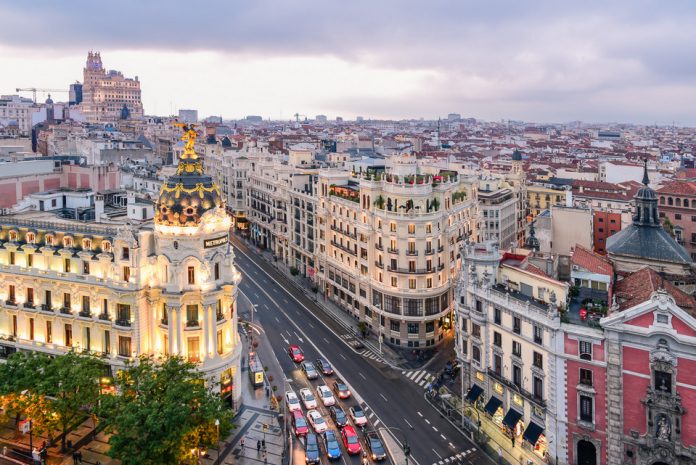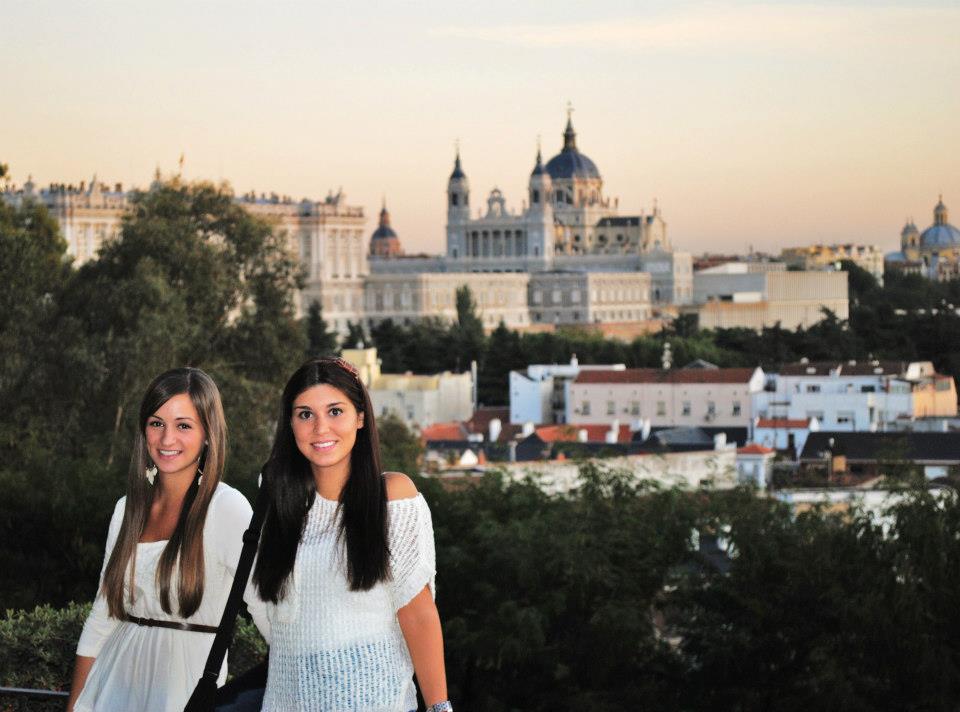Madrid is not only a city, it is a large capital of Europe, with a population of more than 4 million people in the central area and more than 5 million people in suburban areas. People come to Madrid not only to travel, but also to experience the capital of Spain with an extremely vibrant nightlife, “Royal” cultural, lifestyle, the art and unique architectural buildings of this city. So, is Madrid worth visiting? Let’s explore one of the most beautiful destinations in Europe through our Madrid travel blog (Madrid blog) with the fullest Madrid travel guide blog (Madrid city guide, Madrid visitors guide) for a wonderful trip to Madrid on a budget for the first time from how to get there, best time to visit, where to stay, best places to visit and what to do… in Madrid below to find out the answer!
- What to do in Madrid? — 7 best things to do in Madrid & must do in Madrid
- The FULLEST Seville guide: Top things to do, Eat, stay & MORE
- 14+ best places to visit in Barcelona
- What to buy in Spain? — Top +18 souvenirs & best things to buy in Spain
- What to buy in Barcelona? — Top 15+ must-have souvenirs, gifts & best things to buy in Barcelona
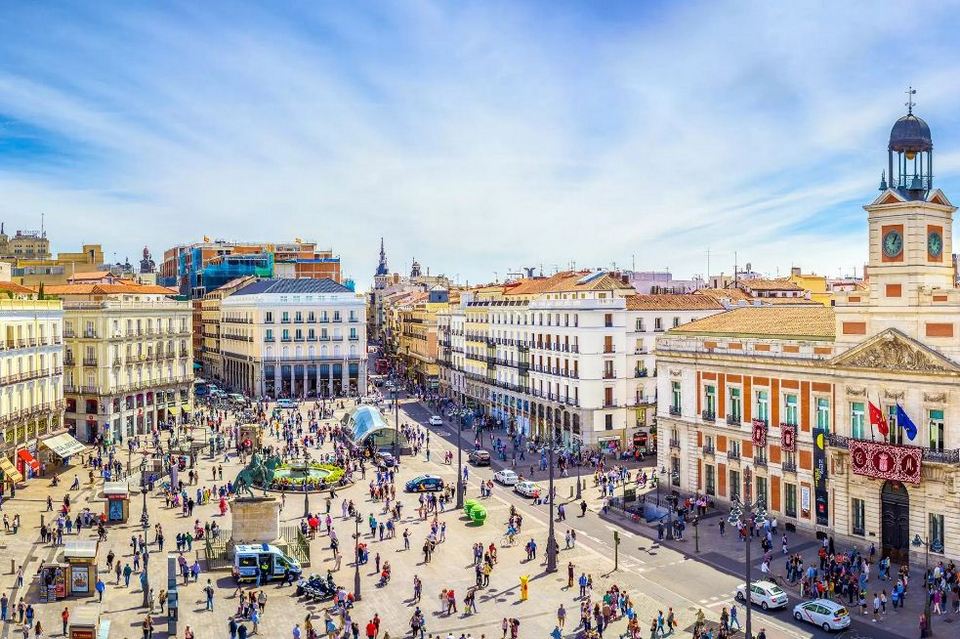
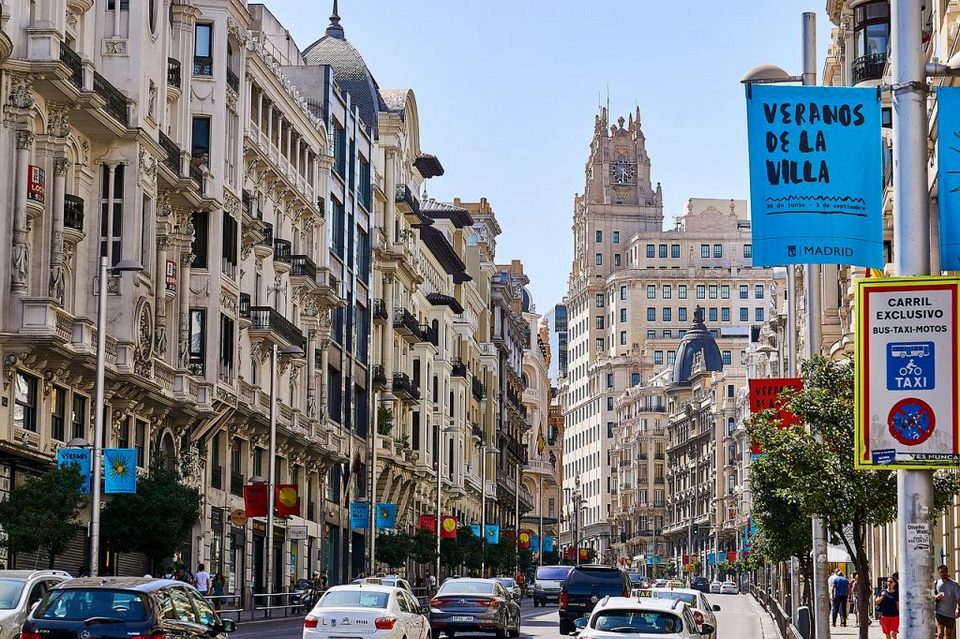
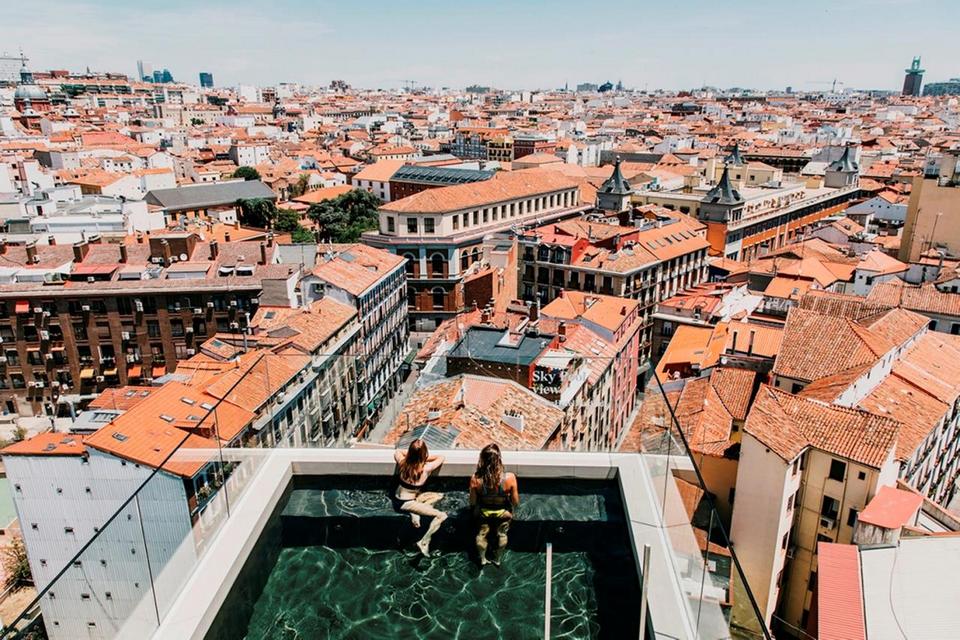
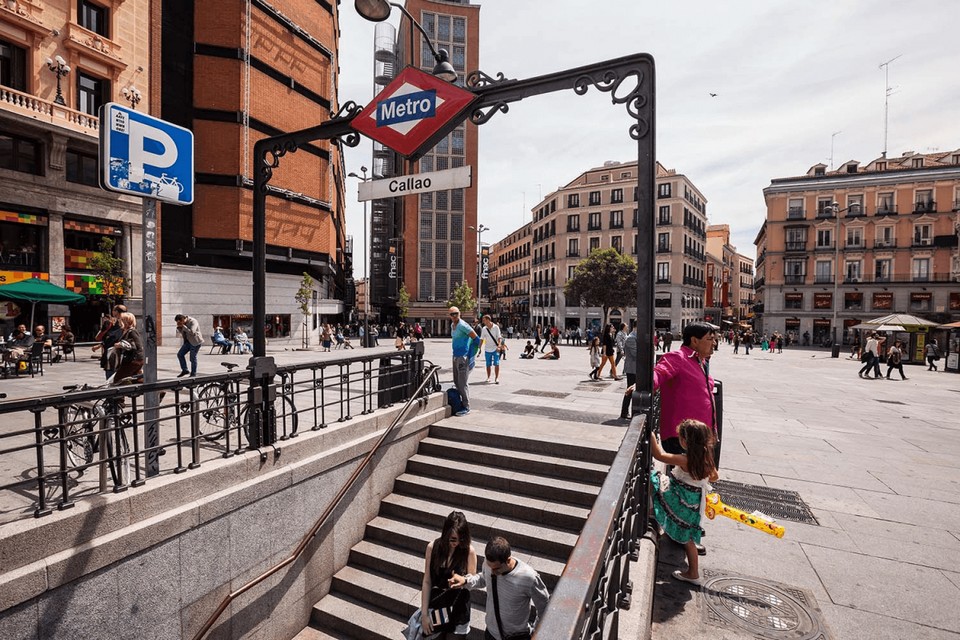
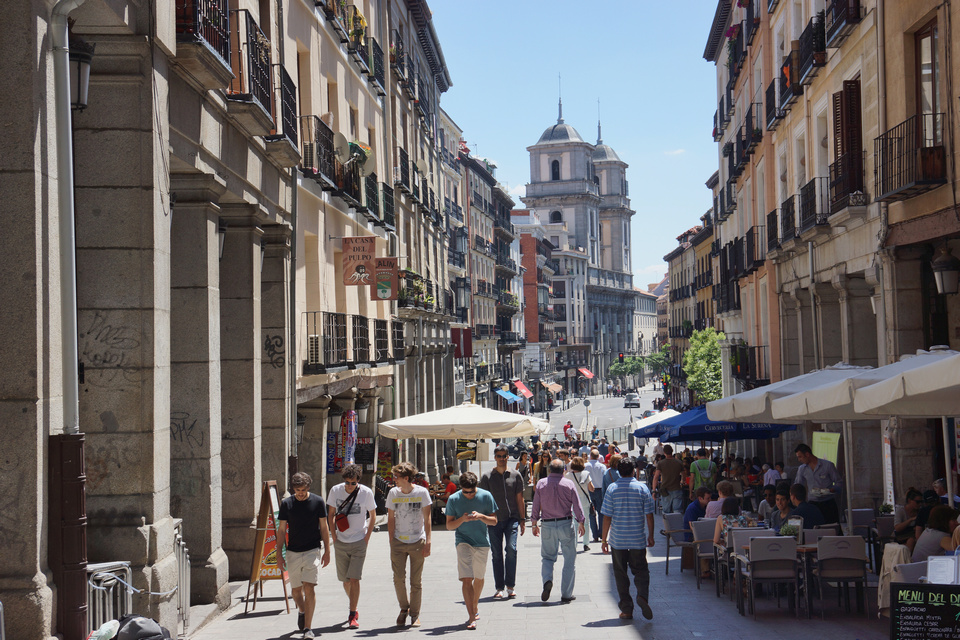

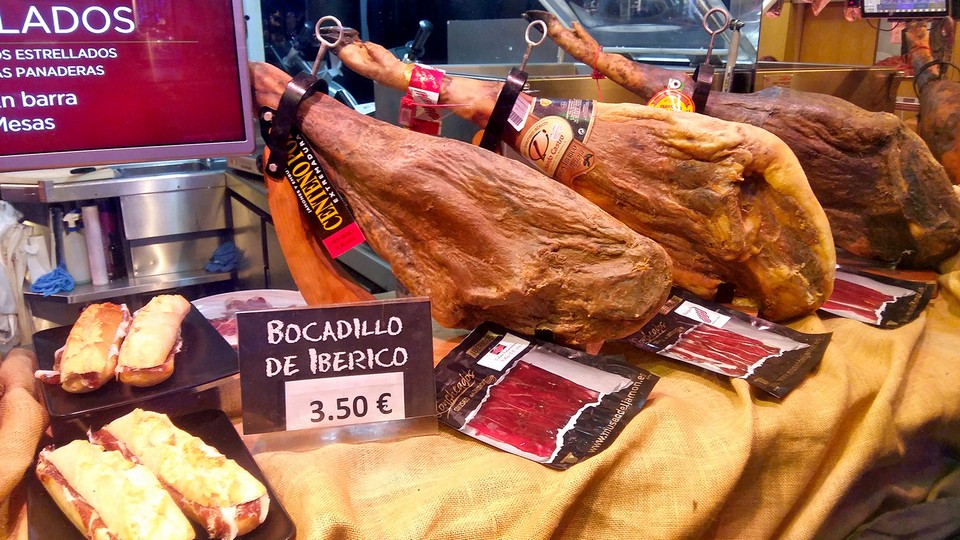
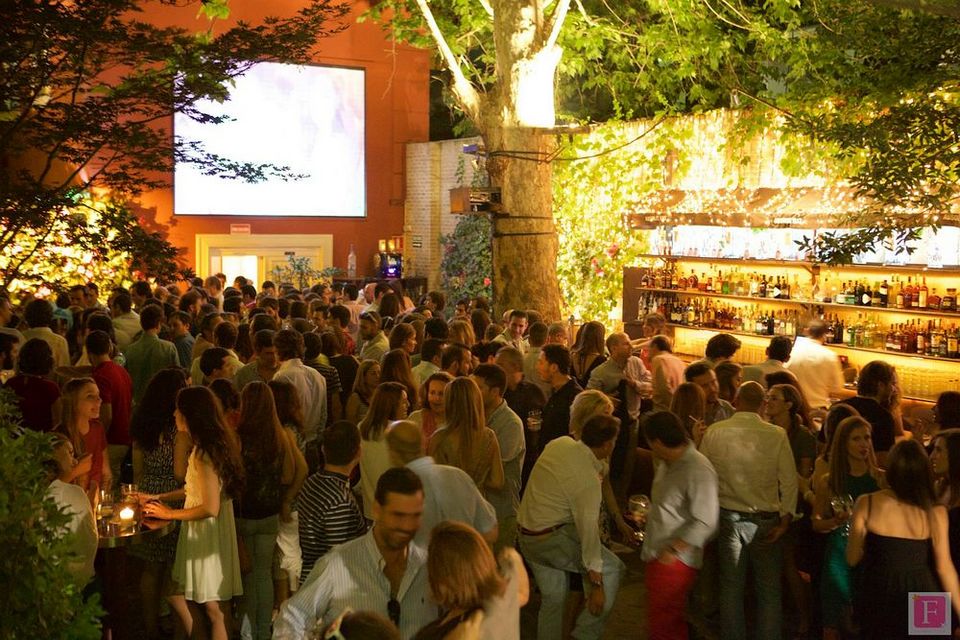
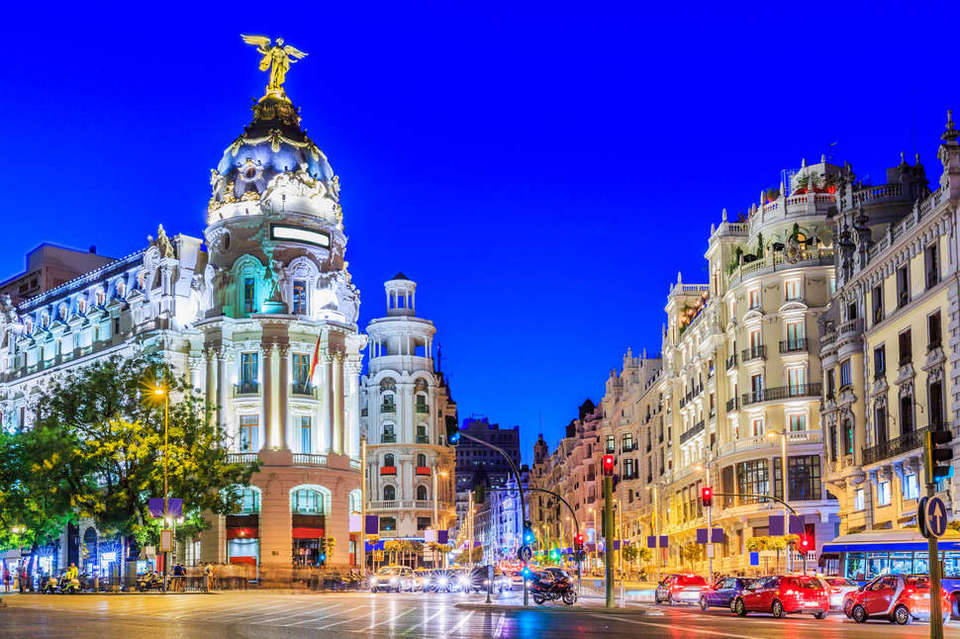
Madrid city guide: When is the best time to visit?
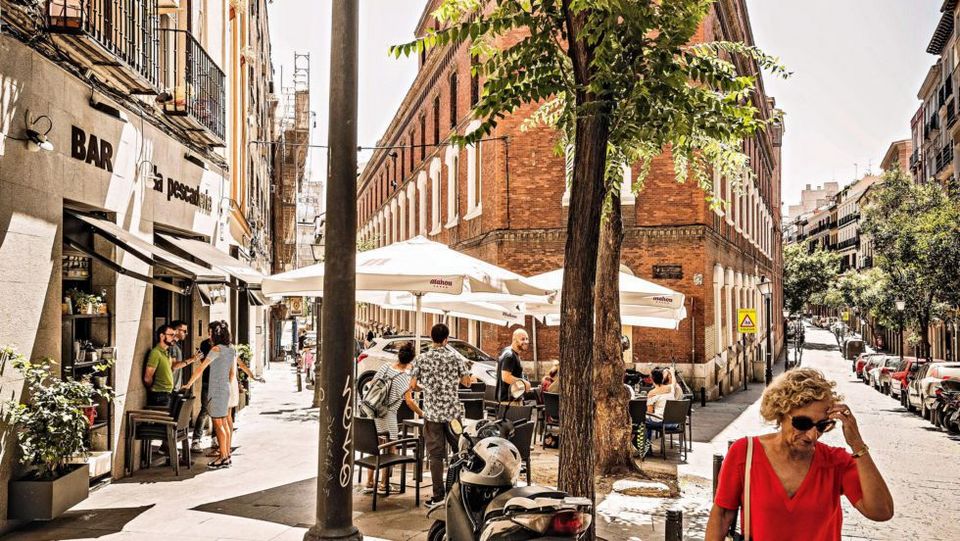
As a city in the Southwest of Europe, near the Mediterranean Sea, the weather in Madrid is hotter than the other regions of Europe. In summer from July to August 8 is Madrid’s hottest time, but still much more pleasant than the hot and humid weather of Vietnam. The humidity here is low so it is not too harsh, the best time to visit Madrid is from April to May or from September to October. Winter in Madrid is also very cold, snow covers many streets in the city. Traveling to Madrid at this time seems unreasonable.
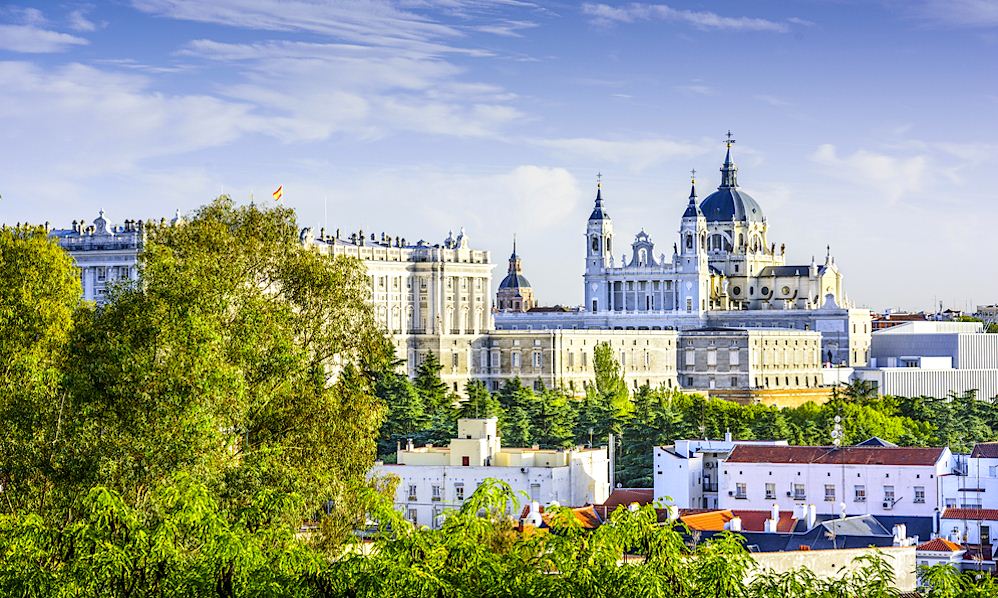
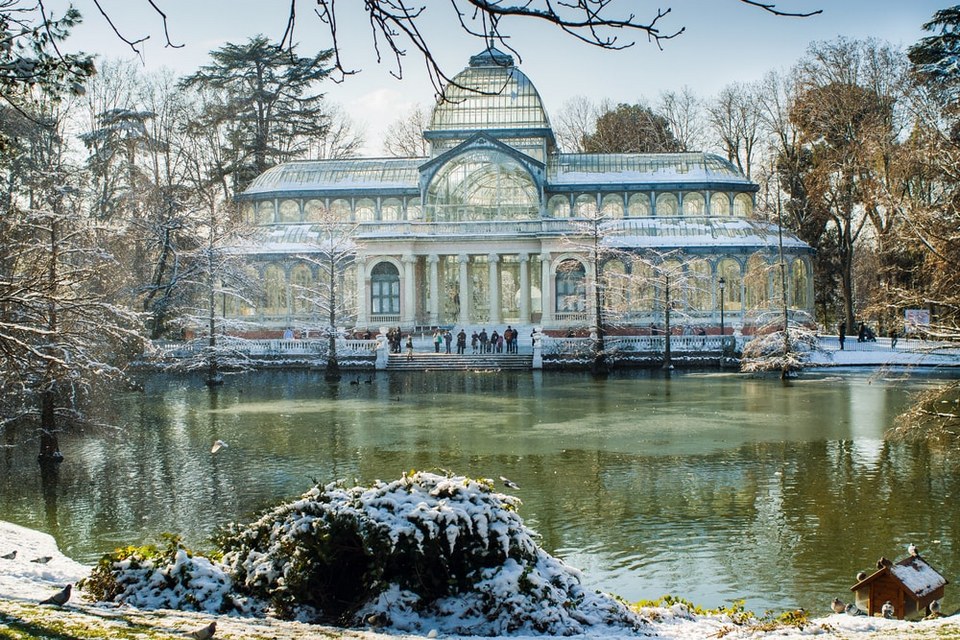
A trip lasting 3-4 days for backpackers or self-sufficient travel is good, visiting some museums, Bernabeu stadium and especially making a day-trip to the surrounding areas, it will be a memorable experience for anyone.
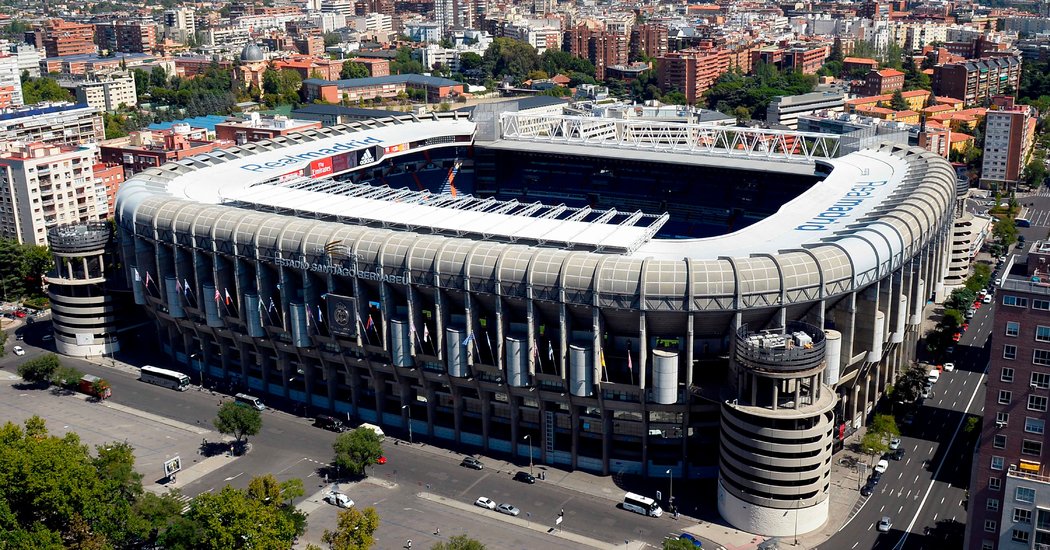
As a young city with a liberal lifestyle, Madrid people love to play at night and drink until morning. The cost of eating, traveling and stay in Madrid is also cheap compare to other cities in Europe. However, because the city is young, the architecture here is very new, most of them were built in the 20th century. In addition, traveling to Madrid you also need to be cautious with the tourist scams of Indigenous people, eating and drinking should learn carefully to avoid high-cost of restaurants but the quality is extremely bad.
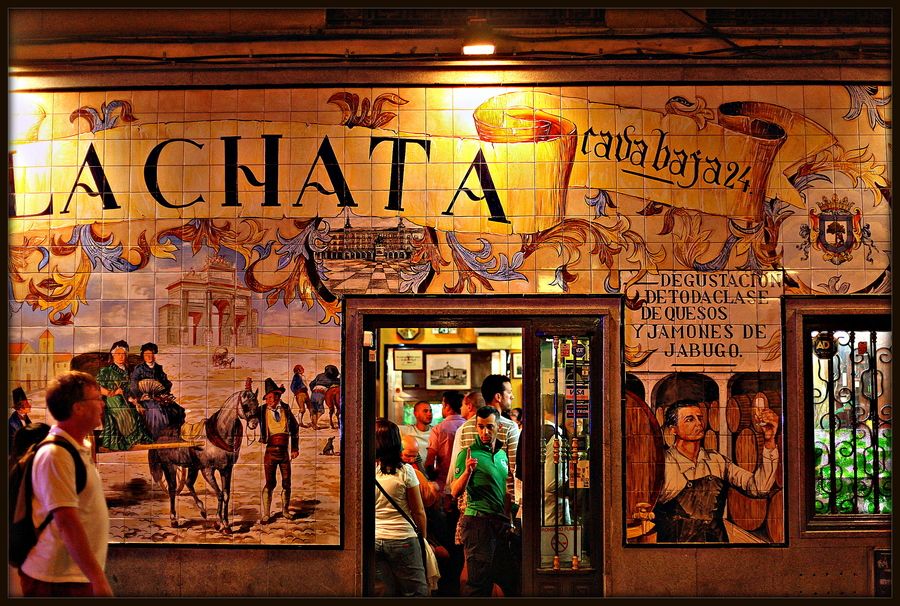
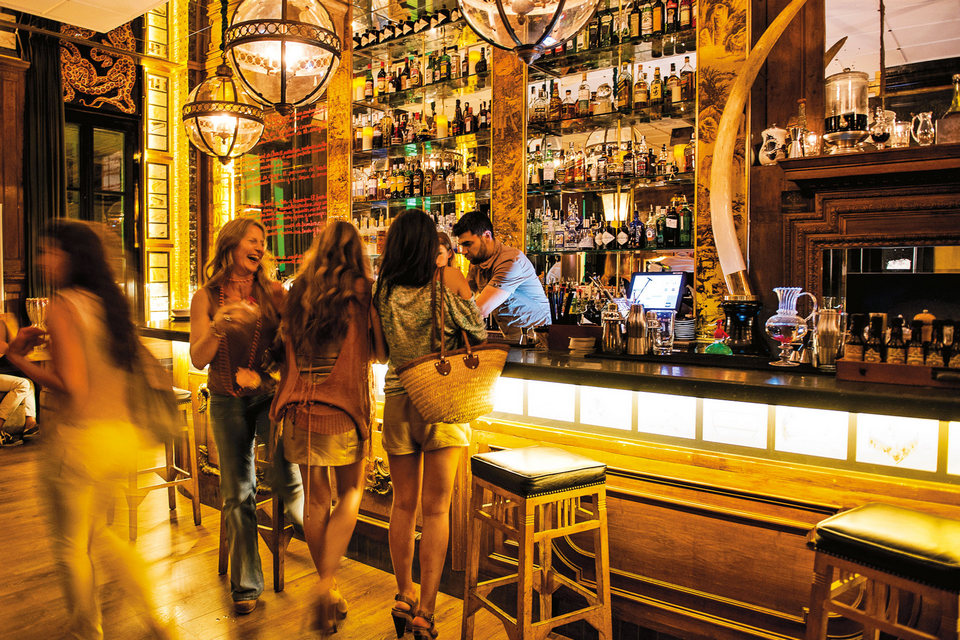
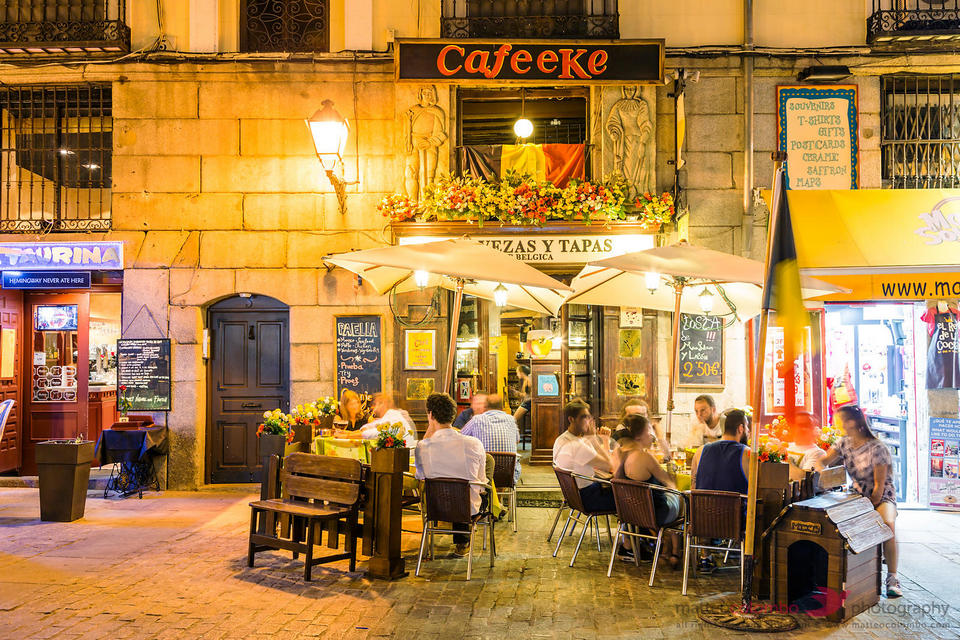
Madrid travel blog: How to get to Madrid?
Fly to Madrid
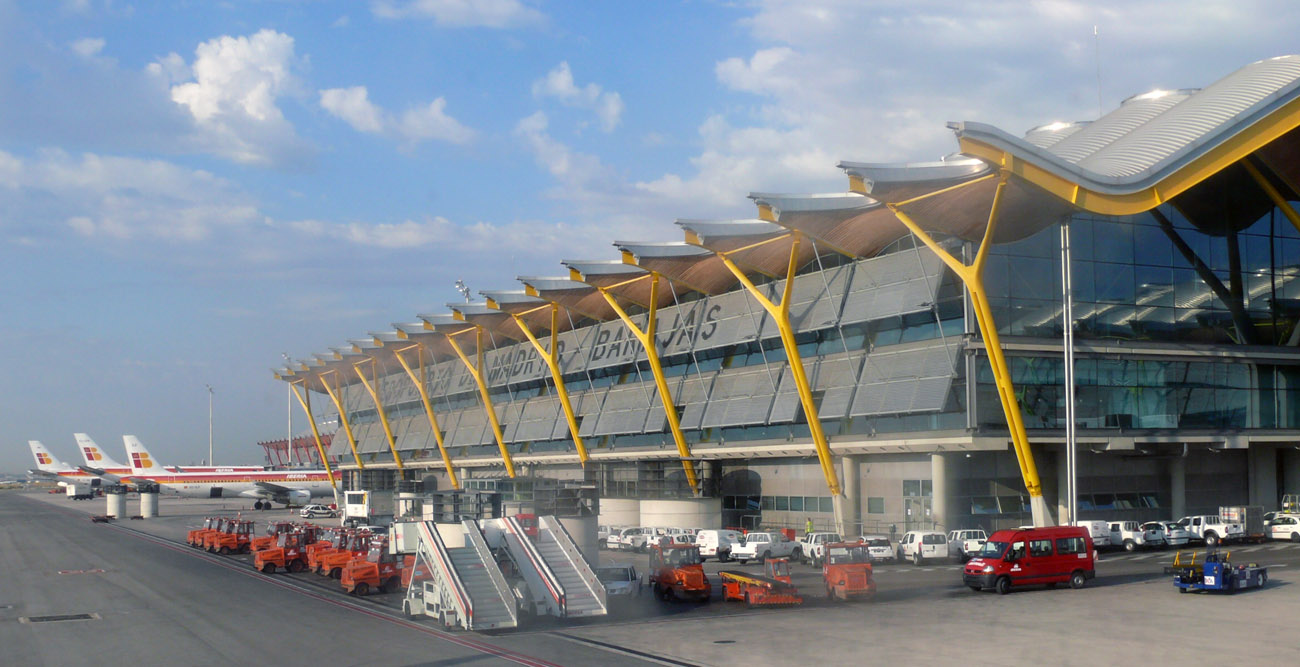
Most tourists flying to Madrid will land at Madrid Barajas International Airport (MAD), about 12 km from the city center to the north. Madrid Airport is very large with 4 main terminals (in which T1 and T4 stations are the largest) and provide services to dozens of airlines every day. To getting to the city center you can take Metro, Taxi or Shuttle bus, all of which are easy to find from the point where you get your luggage when you land at Madrid airport.
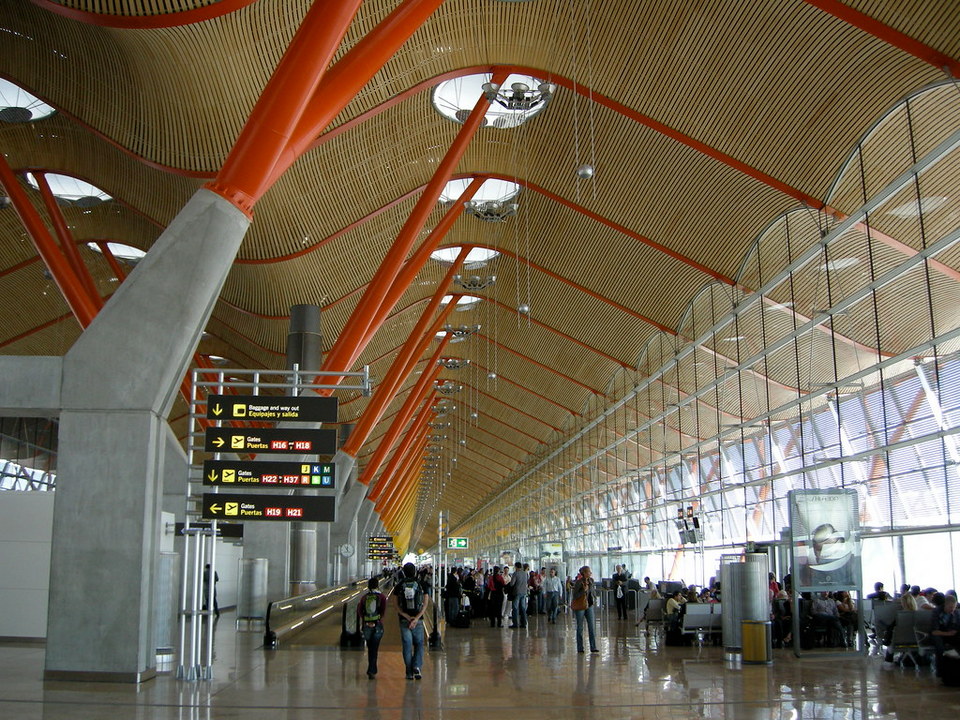
Getting to the city center
Metro (Subway)
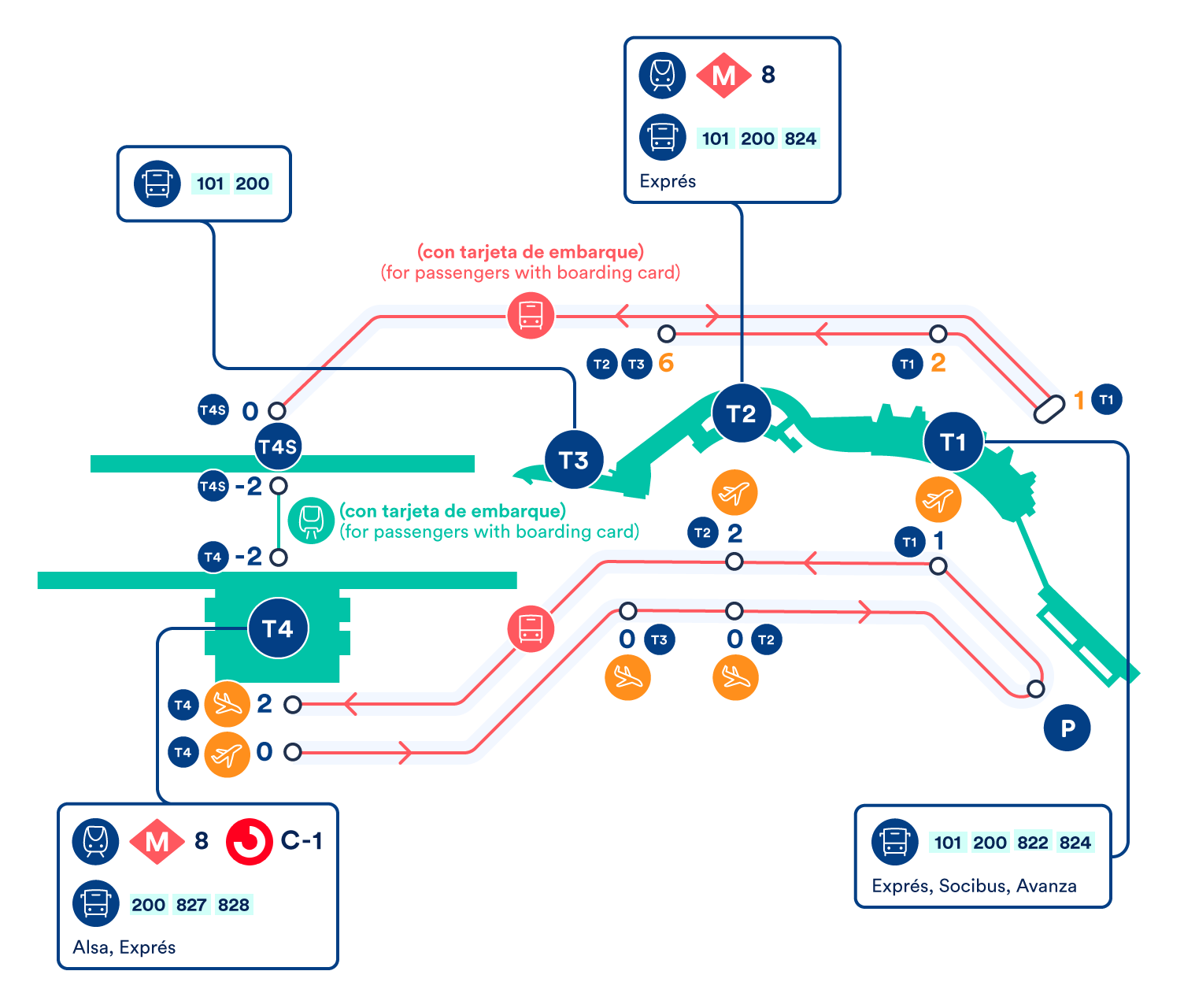
If you go by Metro, find the way to the station “Aeropuerto” at Terminal 4, the one way ticket to the city center is about €4.5 via about 5 train stations, if more, the price only increases by €0.10 for each station. The commuting between Terminal 1,2,3 stations is quite easy, but Terminal 4 is separate from the other 3 stations and there are buses going between these stations.
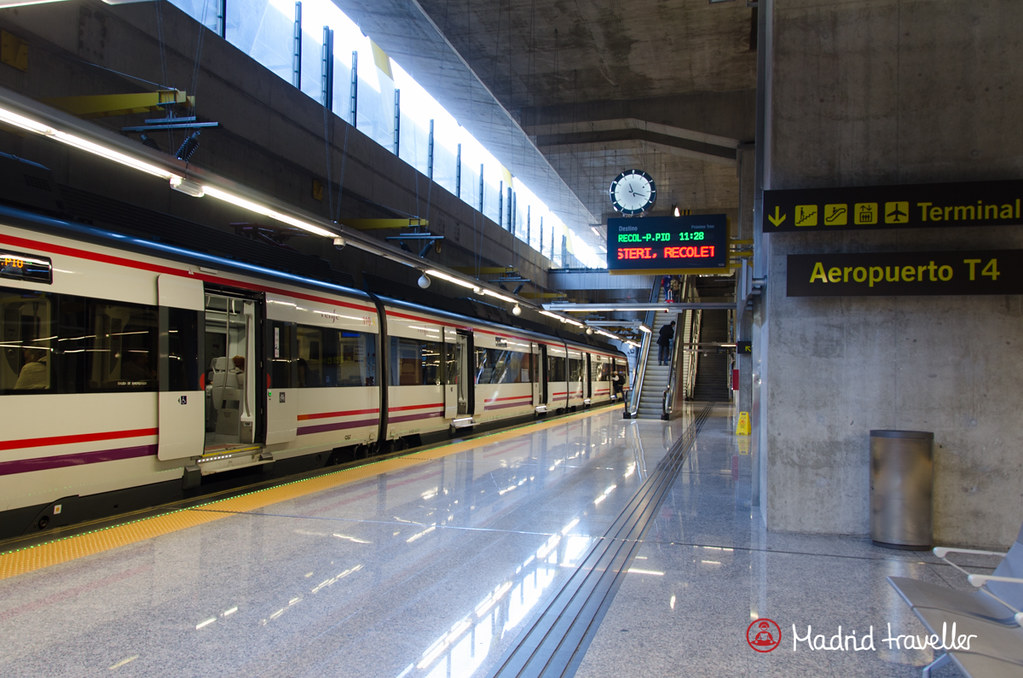
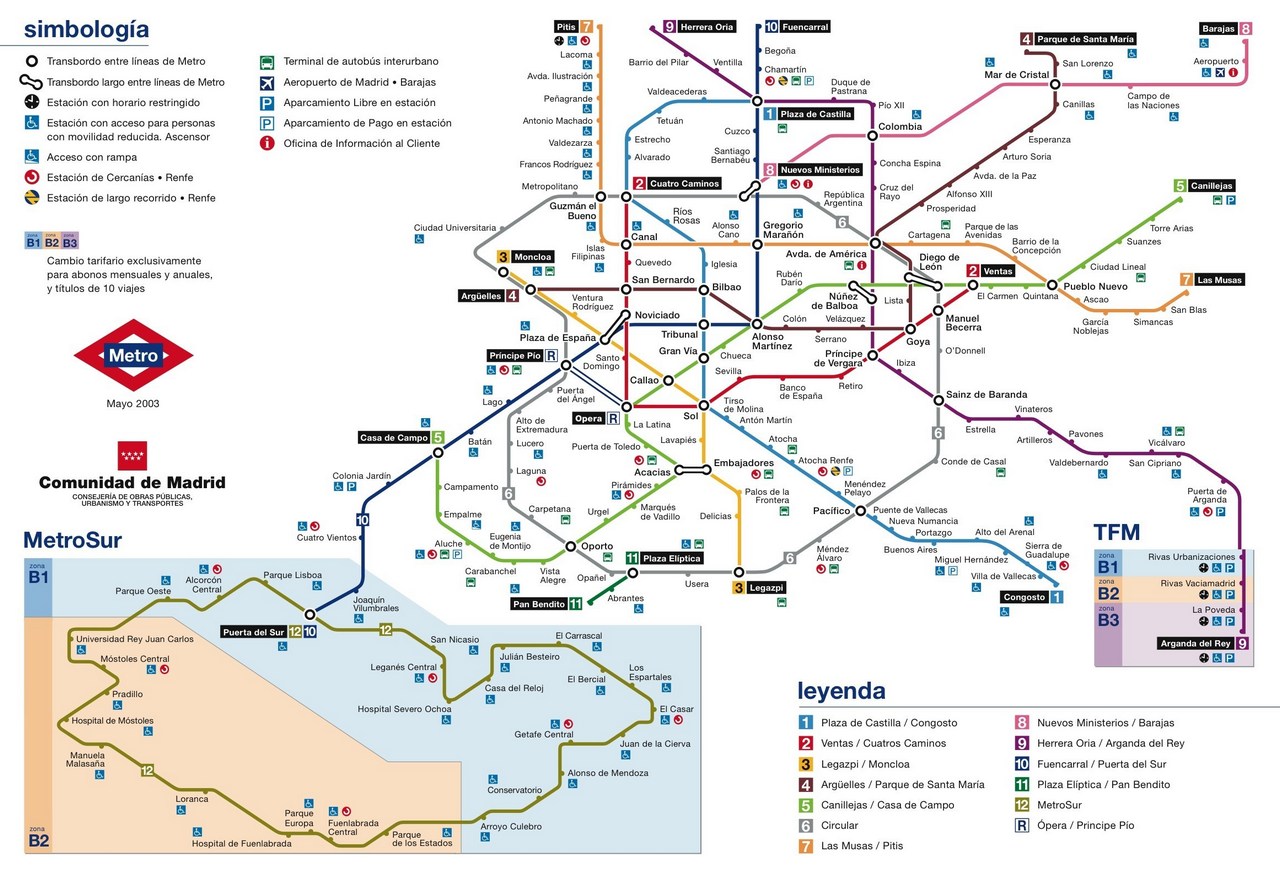
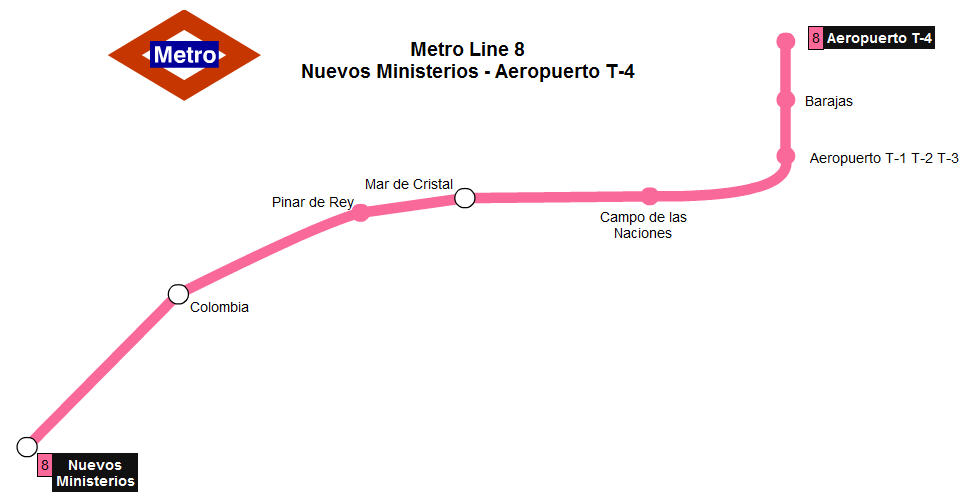
Metro line 8 (pink) will take you to the city center, to the end point you can change the line to line 6 or 10 at the Nuevos Ministerios point to get to the hotel you have reserved. Note that Metro Nuevos Ministerios station will have a lift or escalator for you to go and change line. Here, in addition to continuing to travel by Metro, you can choose to take a bus. Get out of the Nuevos Ministerios station and take a short walk to Paseo de Castellana and you’ll see a bus stop, take the south bus of number 14 or 27 to Atocha (downtown located in the south). Usually small Metro stations will not have elevators and you will have to be careful with your bulky luggage.
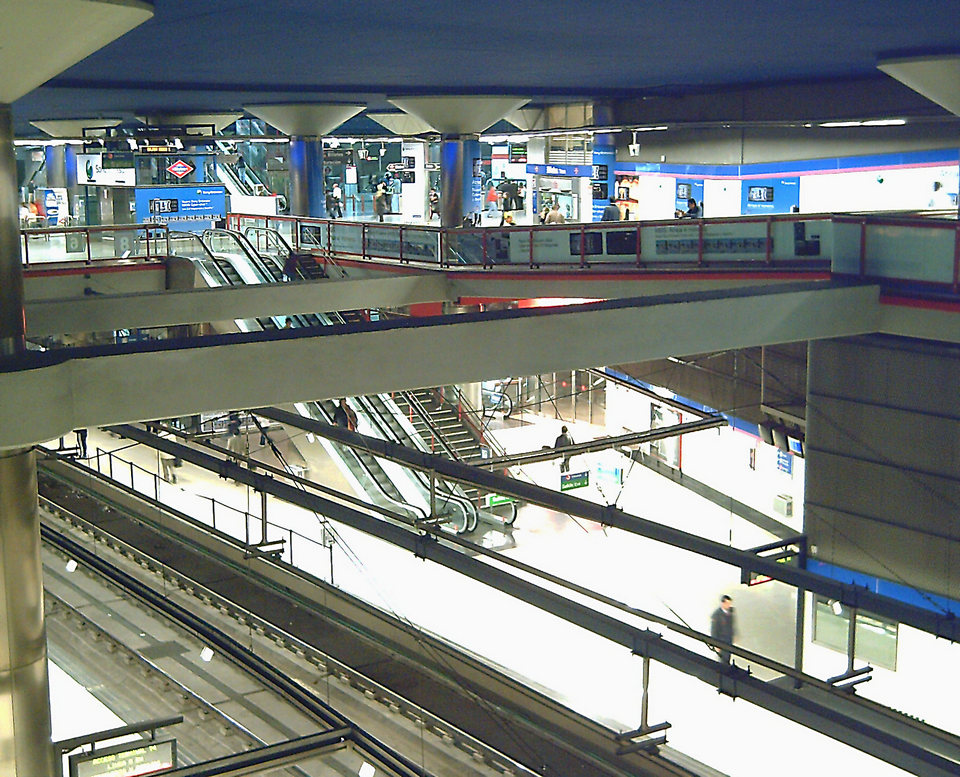
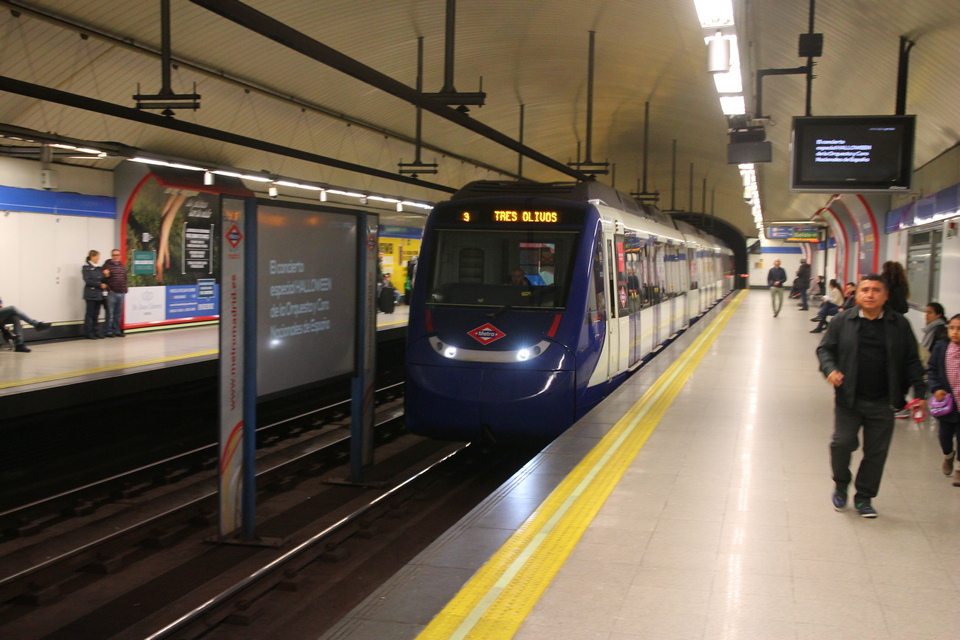

Shuttle bus
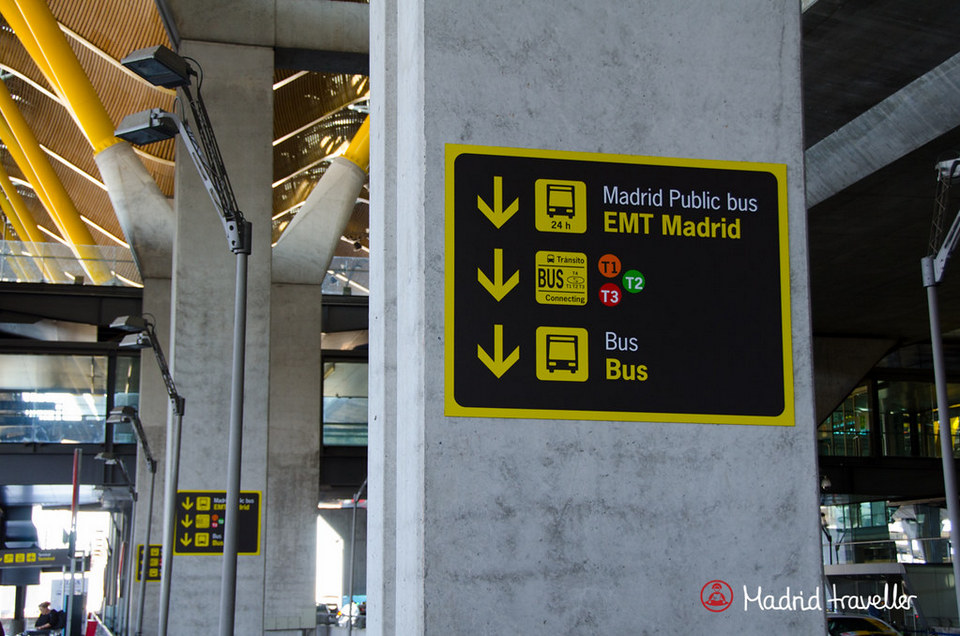
This type of airport transfer bus is also available recently, taking you to or from Plaza de Cibeles station or Atocha to Barajas airport (stop at all terminals 1,2, 3,4), the bus fare is 5 Euro/trip, the bus run 24 hours, daytime with every 15-20 minutes/trip, night with every 35 minutes/trip, travel time to the city range from 35-40 minutes.
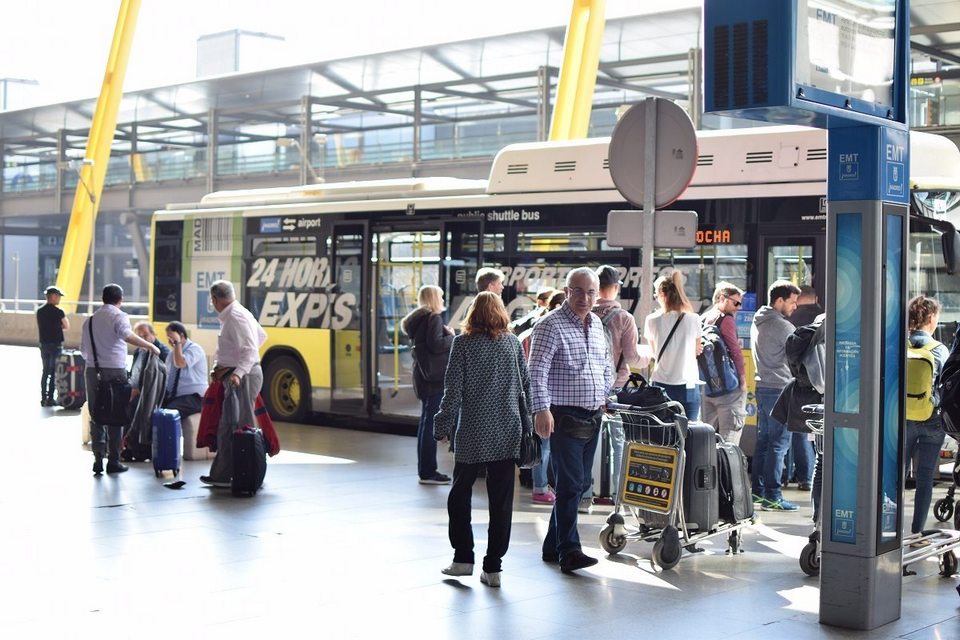
Taxi
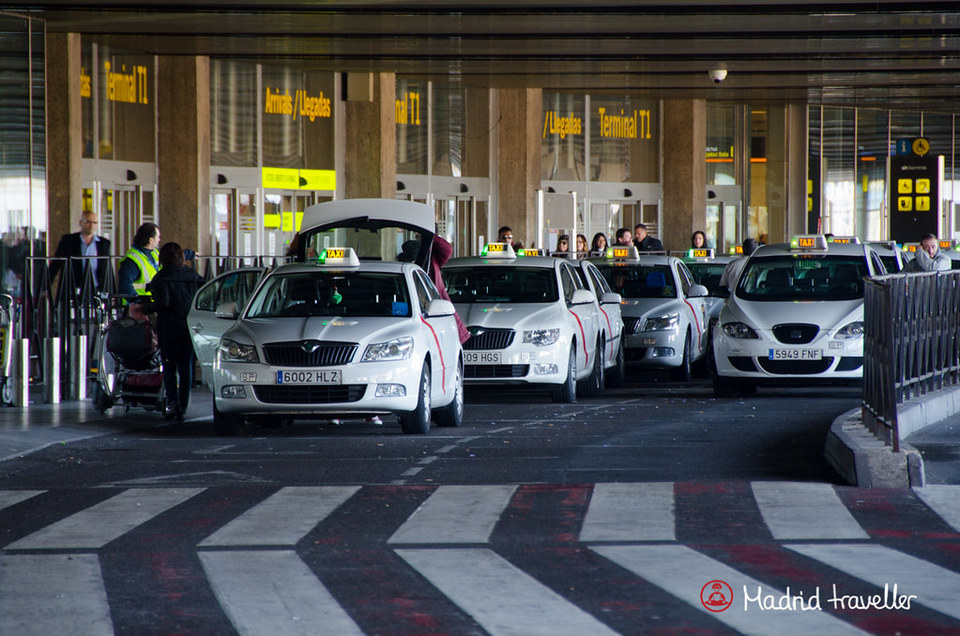
There are many Taxis in Madrid, but you should try to find licensed firms, avoid personal vehicles (painted in red and white), ask them to turn on the meter. Taxi prices from the airport to the city center range from €30 and more depending on traffic conditions, you should avoid rush hours.
Train or bus from another city to Madrid
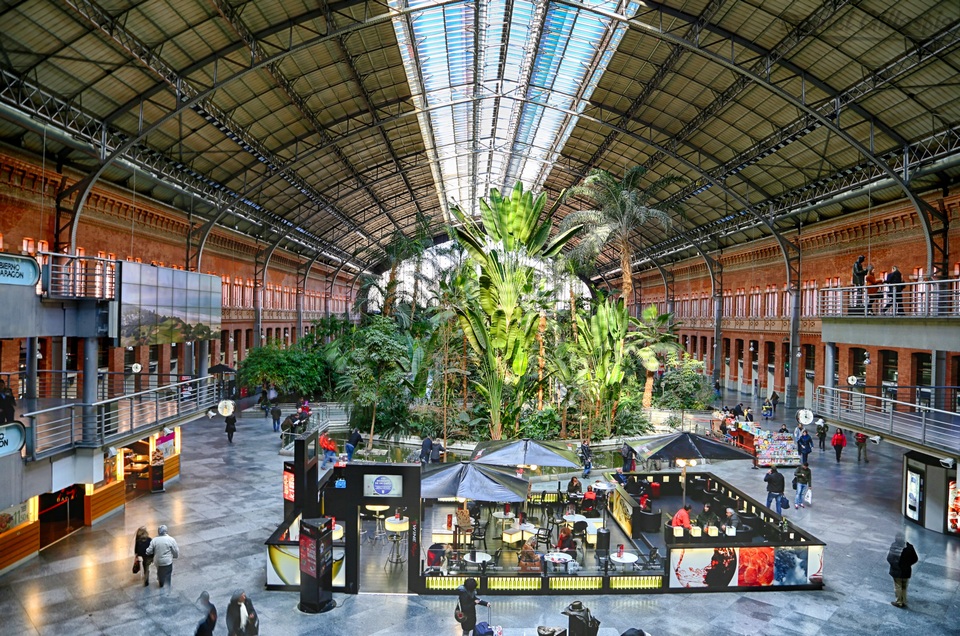
Madrid has 2 large long-distance train stations, Charmartin and Atocha. Charmartin is located in the north of the city, serving trains from the north and east. If you take the night train from Lisbon to Madrid you will arrive at this station. Atocha station is located on the southeastern edge of the city, trains depart here to the south or west of Spain. If you want to take the AVE express train of Renfe or the Alvia Express train, you will have to go to this Atocha station. Some Spanish domestic trains may stop at both stations, so be sure to carefully check the schedule and stops for your train.
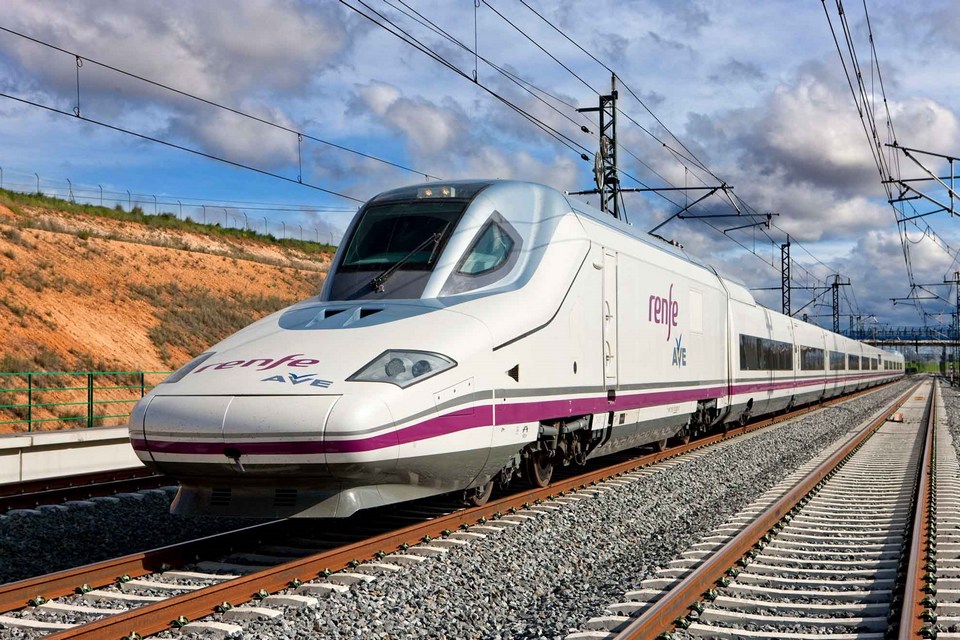
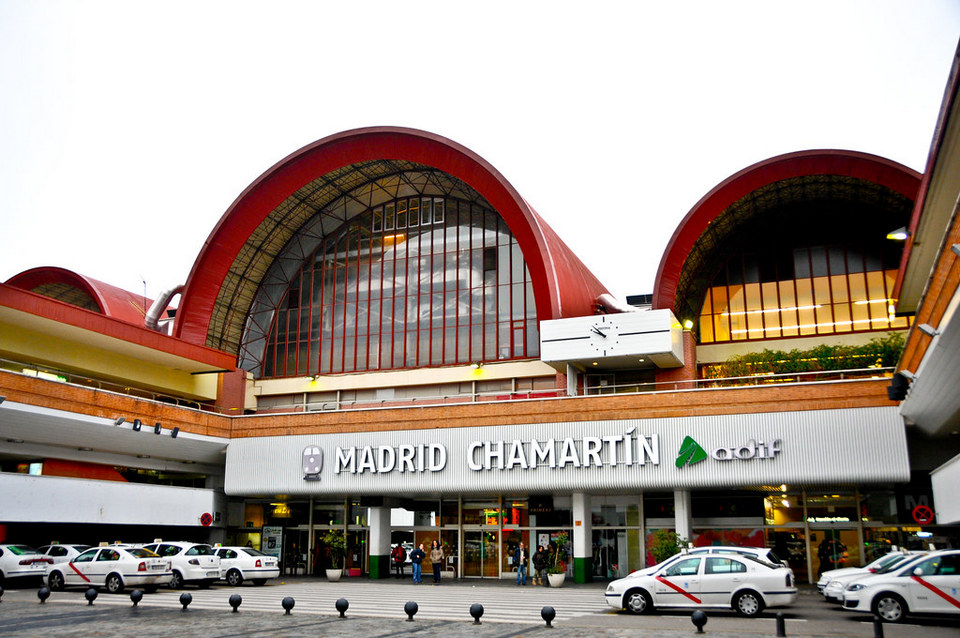
Eurolines has many long-distance bus routes connecting Madrid with other major European cities. These buses usually depart at the Estación Sur de Autobuses station located in the southeast of the city. From here you can catch the Metro line from Méndez Alvaro station of line 6 to getting to the city center.
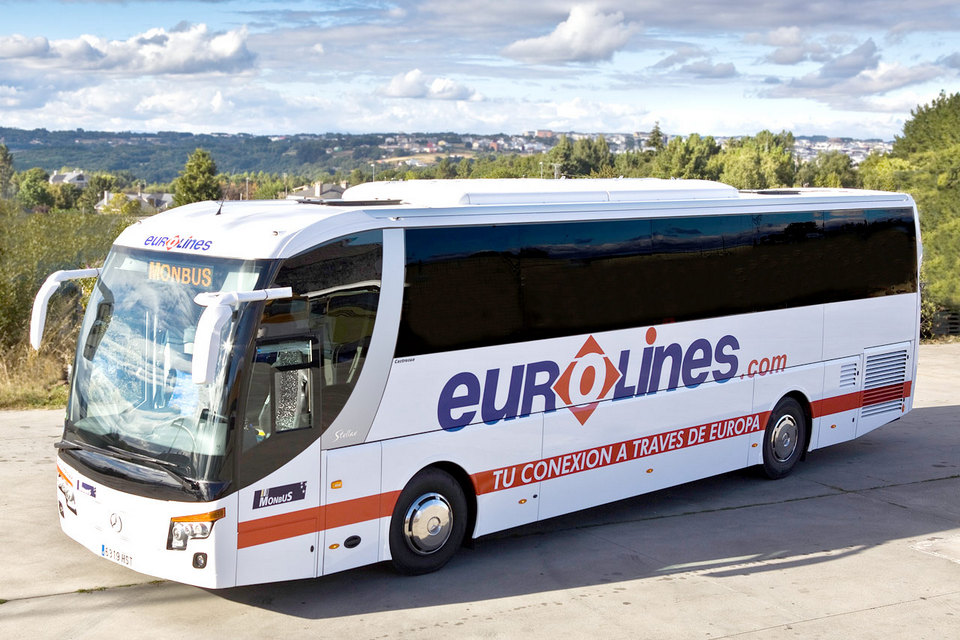
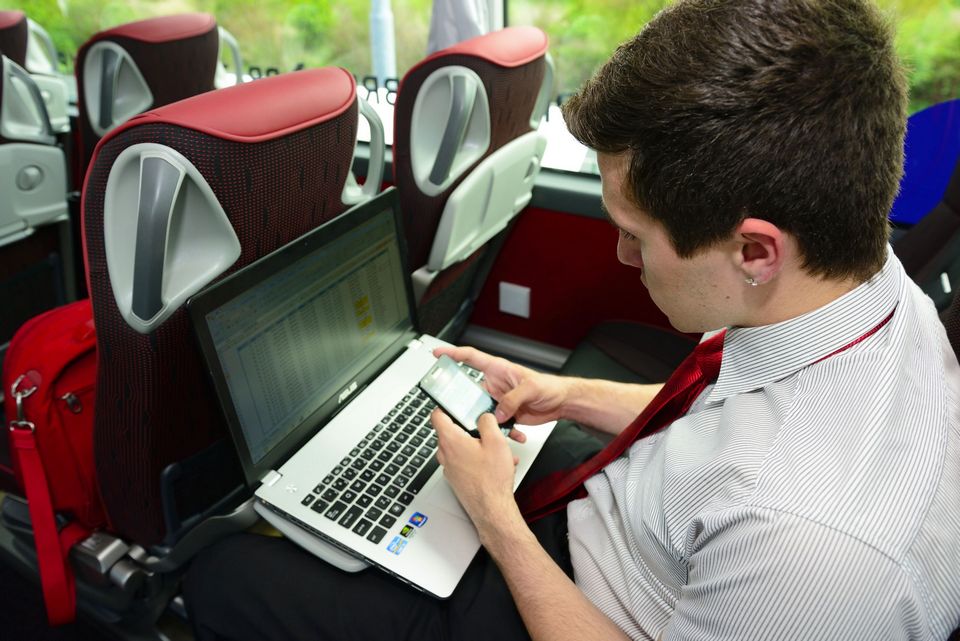
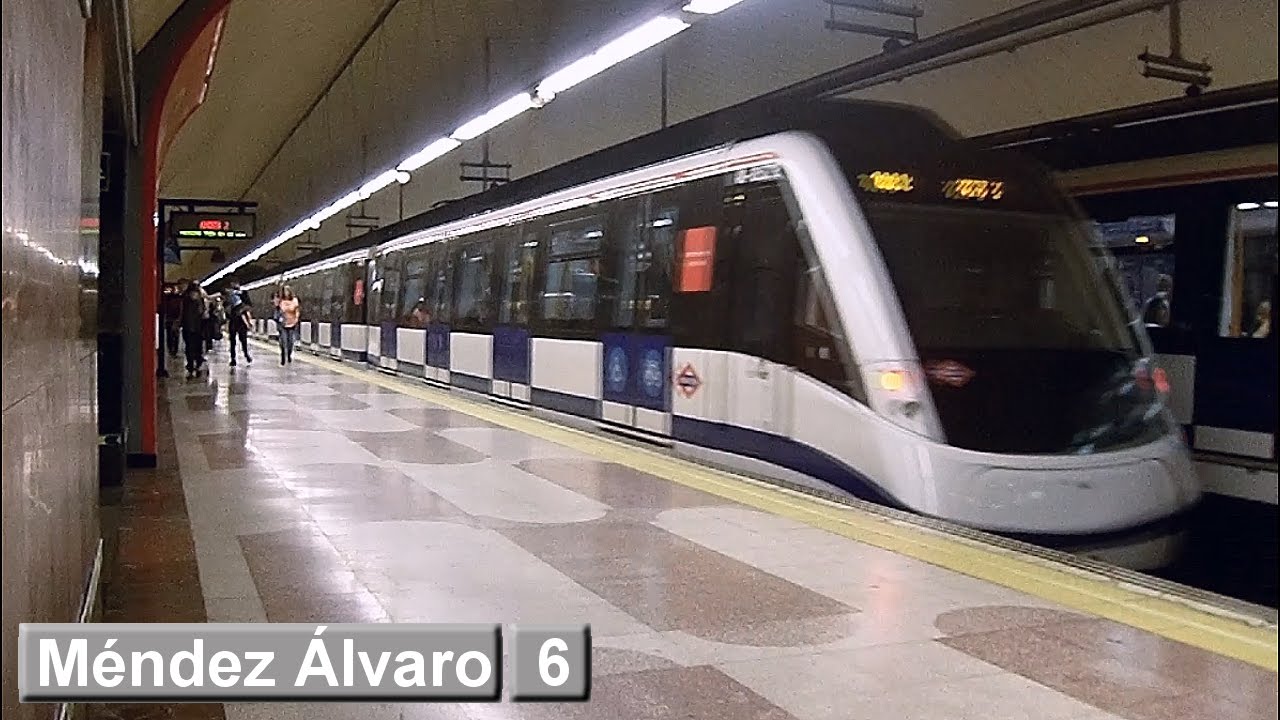
Madrid blog: Getting around Madrid
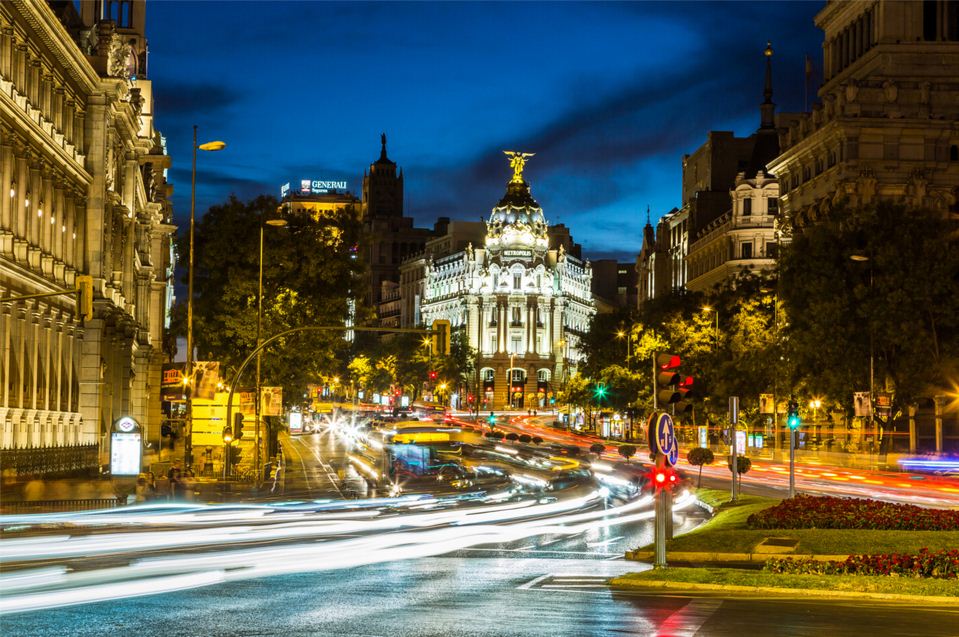
Madrid’s public transport system is quite clean, safe and convenient. With 13 Metro lines marked with different colors, 3 Tram lines and 10 Cercanias lines (a type of local train connecting the city center and suburban areas). Like Barcelona, Metro fares in Madrid is also quite cheap and can be used for all types of public transport. The single ticket (retail ticket) from €1.5-2, if you buy a type of 10 trips card, the price is only €12.20. However, the city center and Madrid attractions are quite close to each other, you can completely walk, only when visit places as far away as the Bernabeu stadium, you just need to take the train.
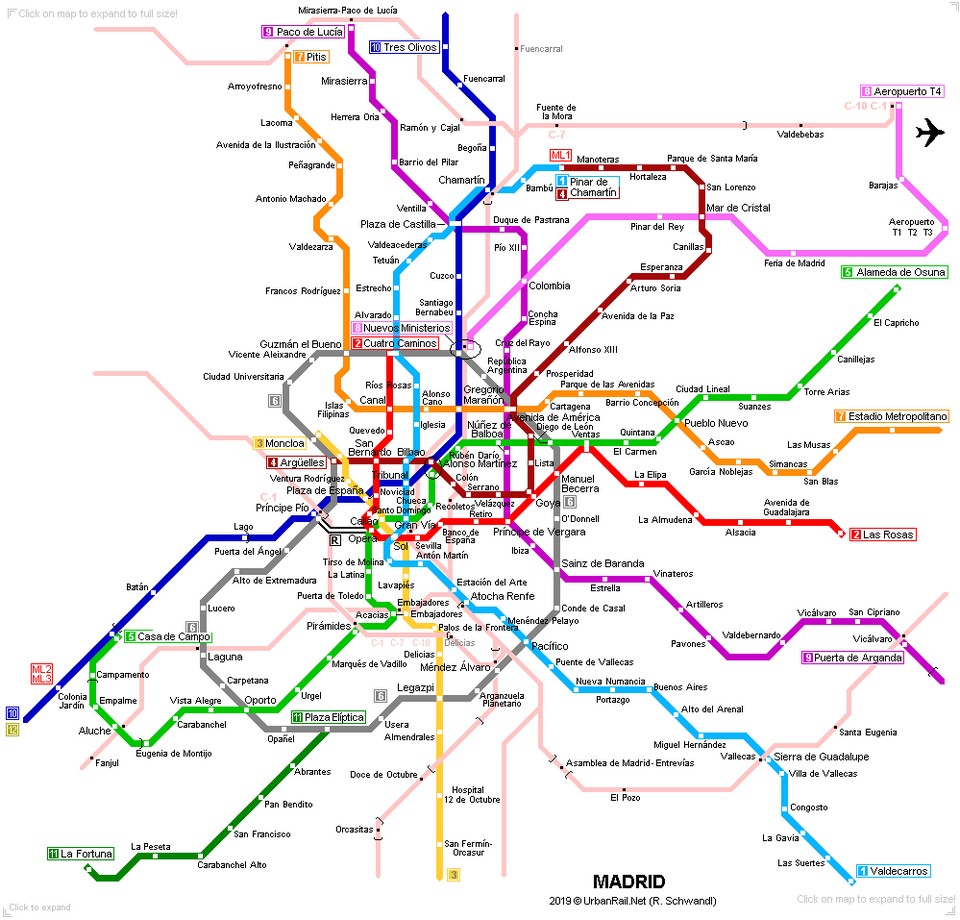
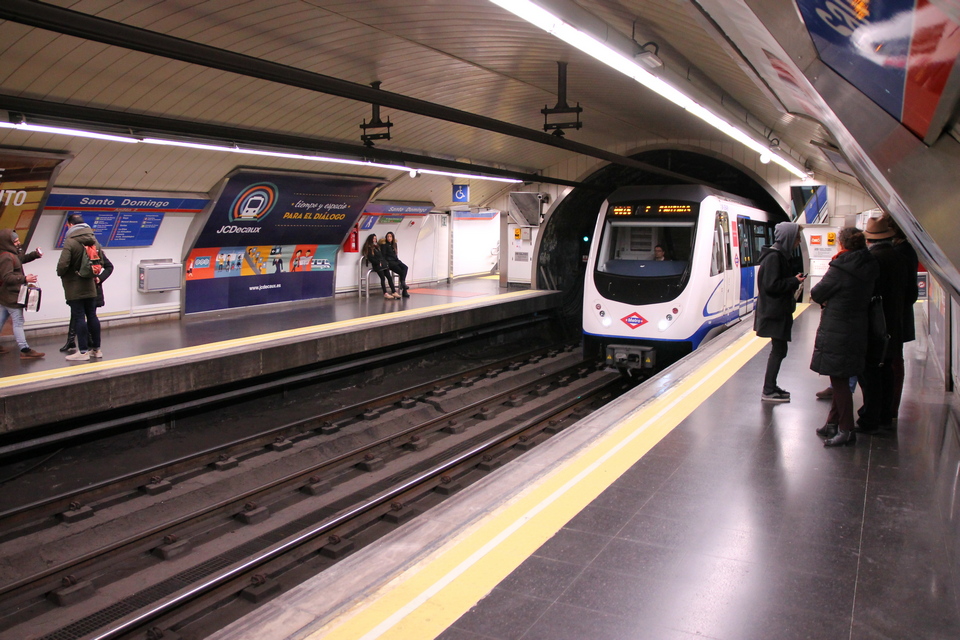
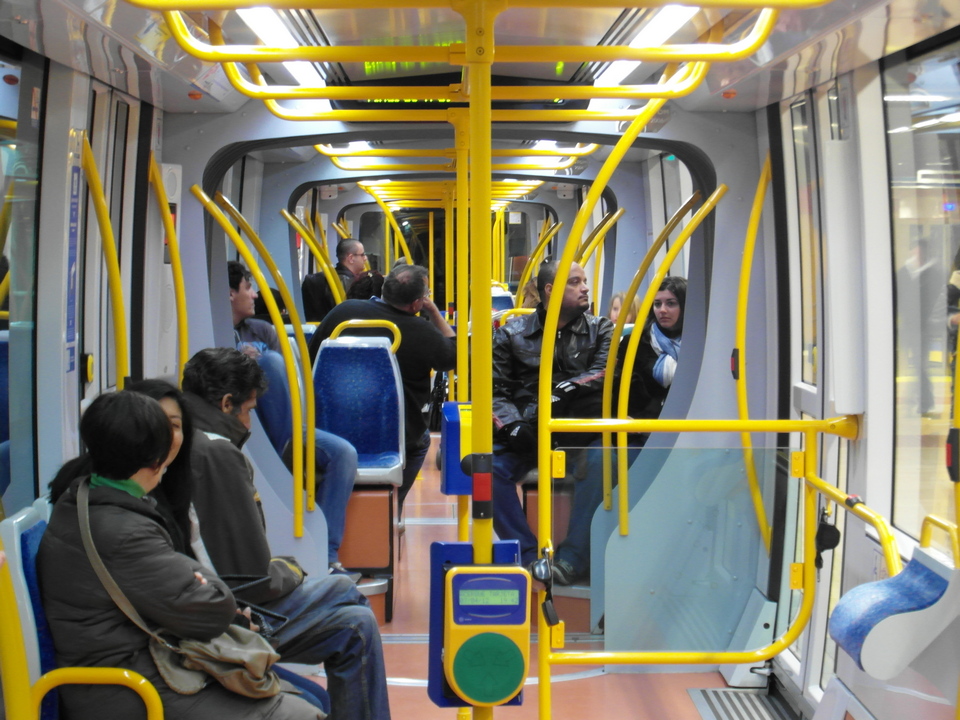
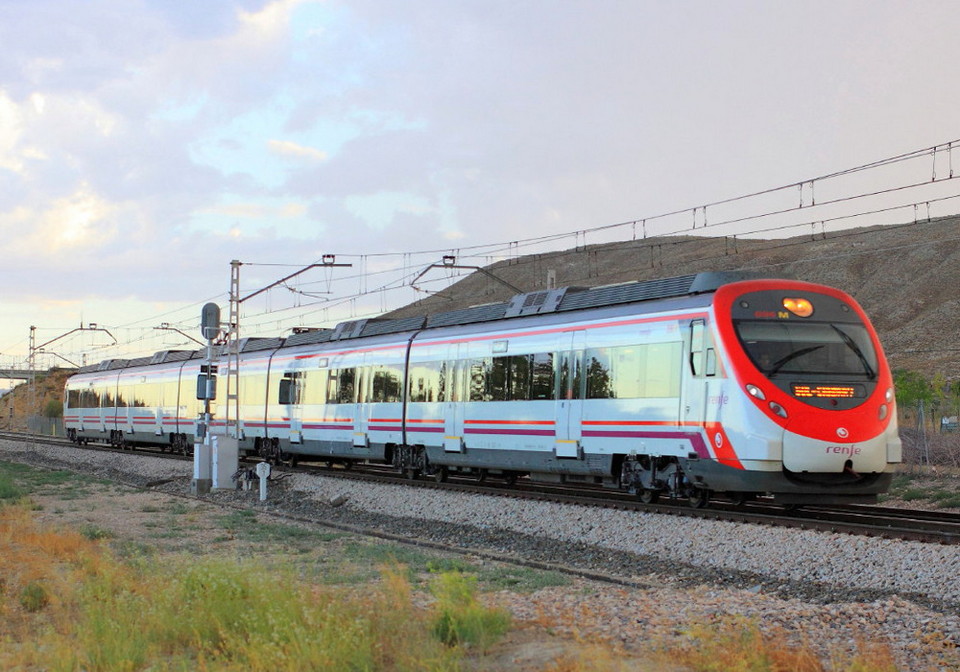
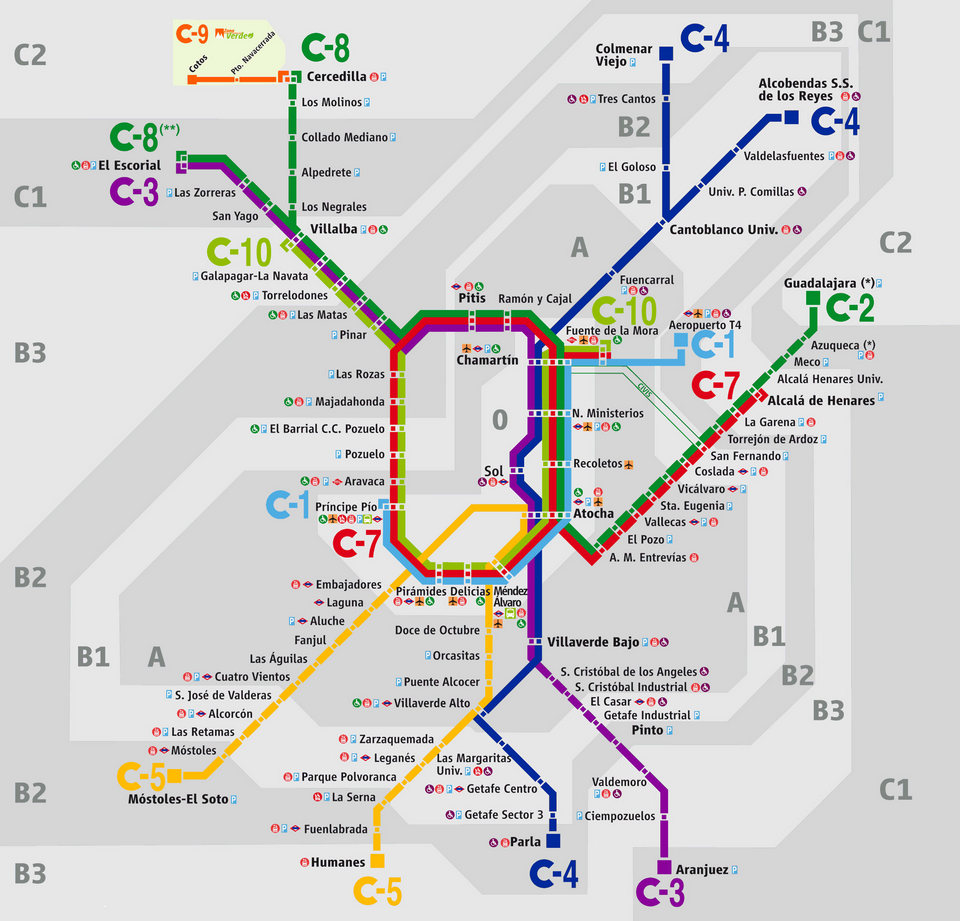
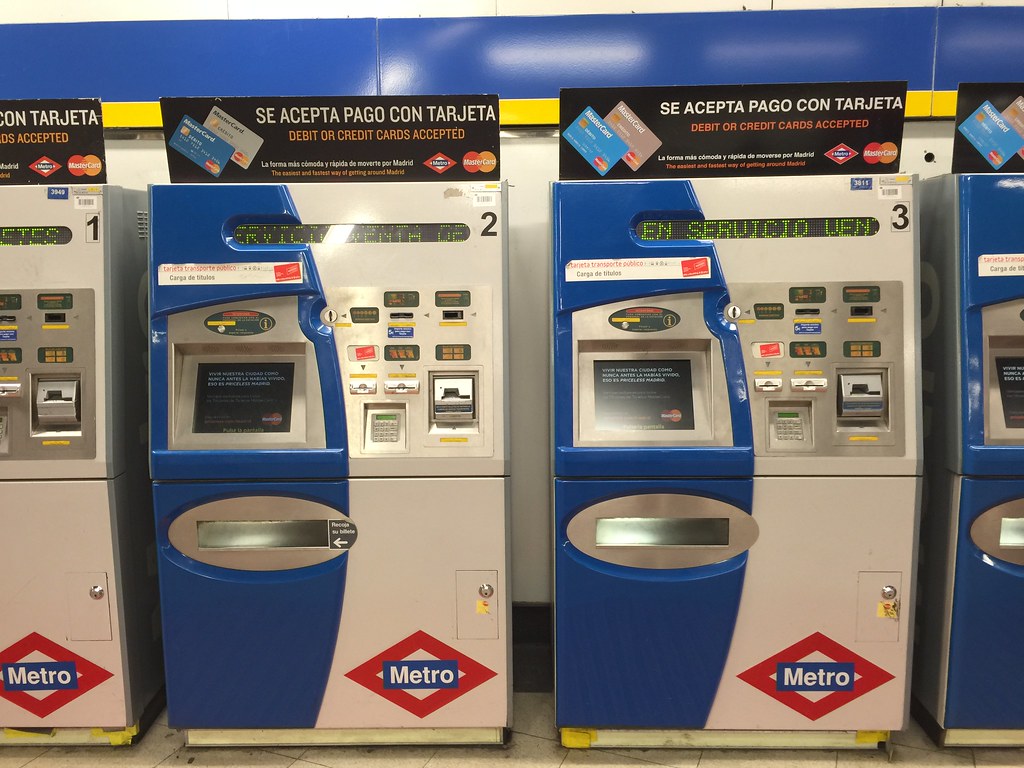
With a single ticket, if you change the train in the Metro system, you will not have to pay extra, only need to use the ticket you have bought, but if you want to change the bus you will have to buy another ticket. You buy train tickets at public ticket counters or automatic ticket machines, accept cash, credit cards. In addition to the single ticket if you plan to stay in Madrid for 3-5 days, travel a lot, you can consider buying a Tourist Pass for unlimited travel with means of public transport. Types of daily passes with prices as follows:
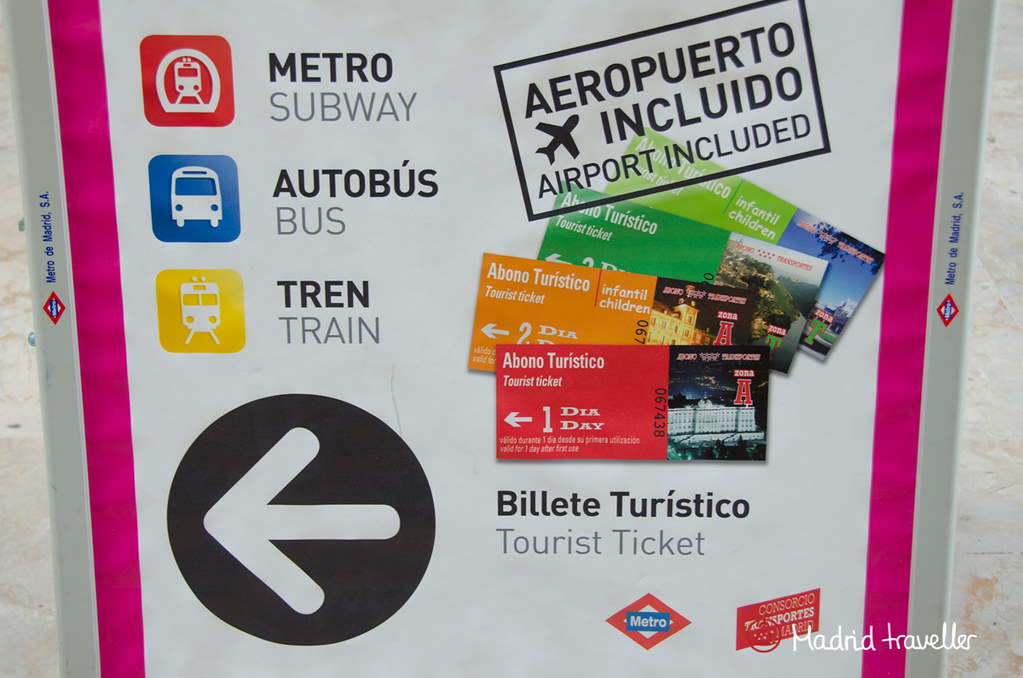
1-day pass: €8.40
2-day pass: €14.20
3-day pass: €18.40
5-day pass: €26.80
7-day pass: €35.40
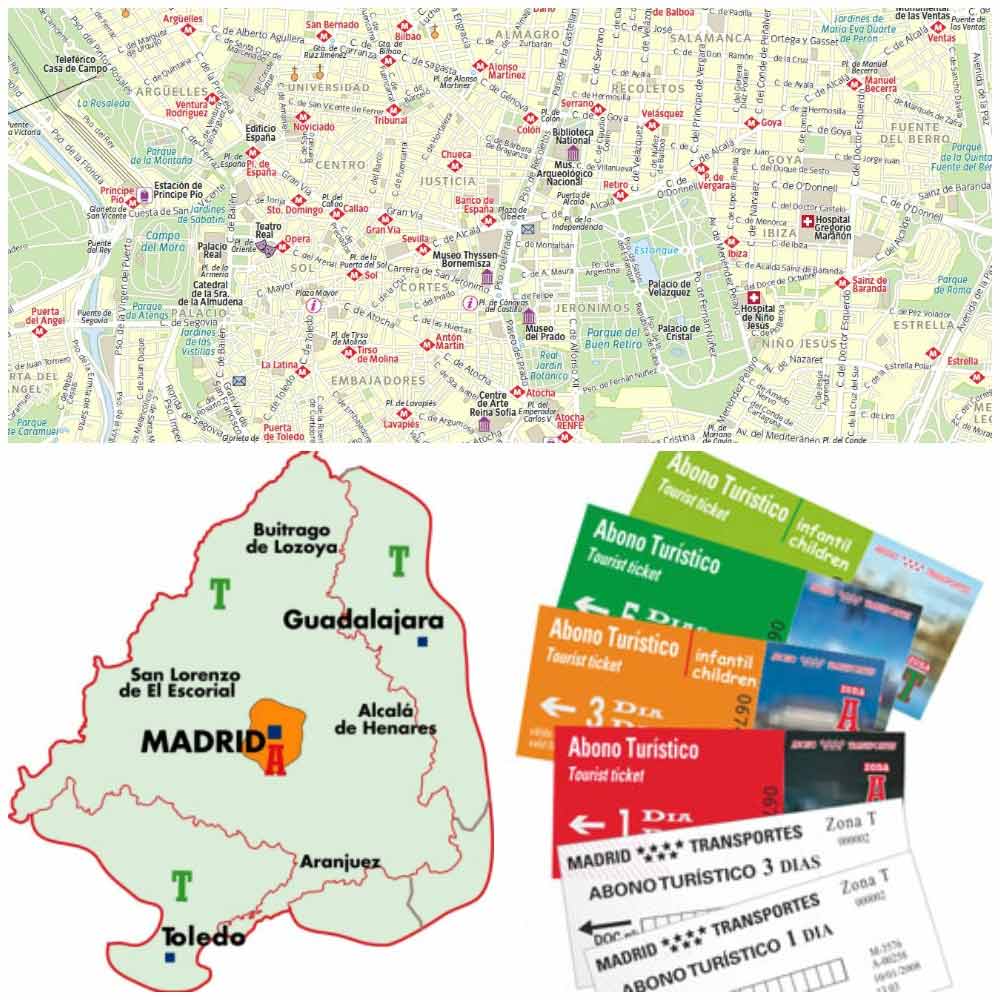
Metro
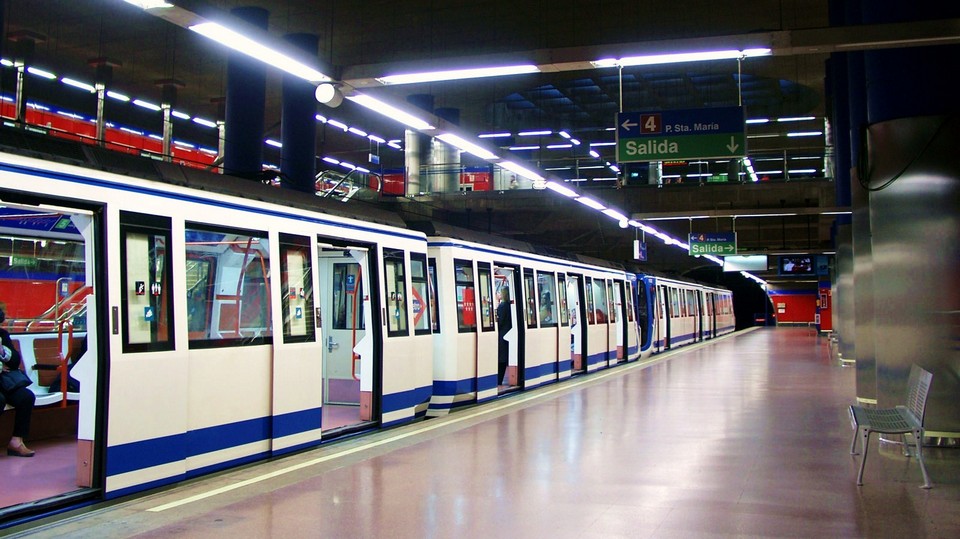
Each Metro line has its own color and quite easy to use. Metro’s travel time between stations is not too long, operating from 6:00 am to 1:30 am, on weekends there is a trip in every 15 minutes. There are also screens on the train that provide information about trains, schedule, TV,.. like other modern cities. However, there are also quite old stations and old facilities. You should also pay attention to avoid picking your pocket on the train.
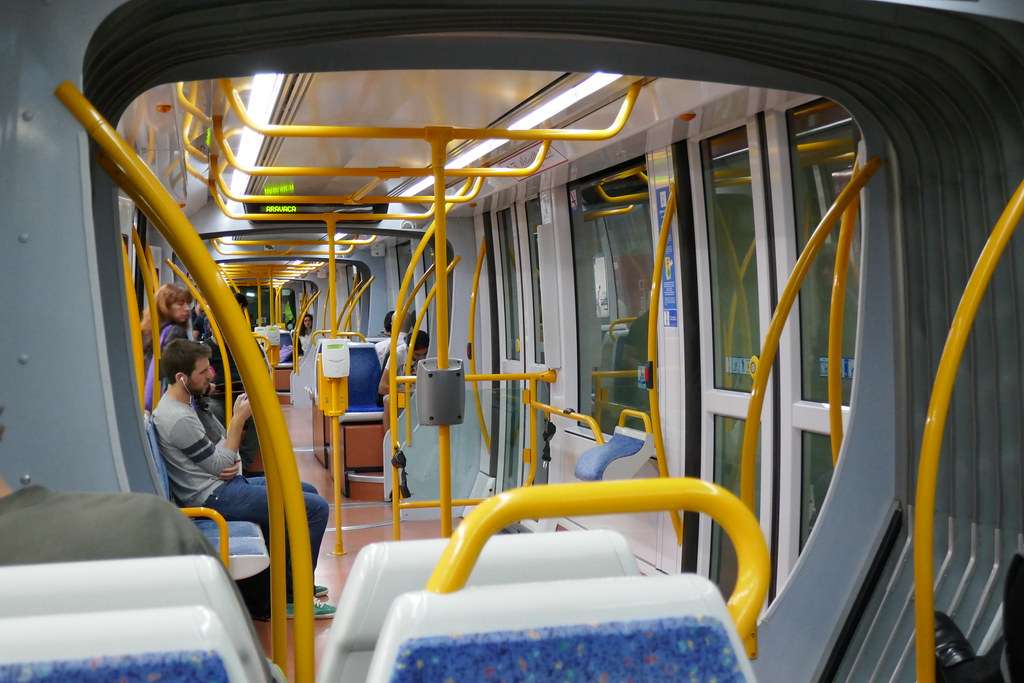
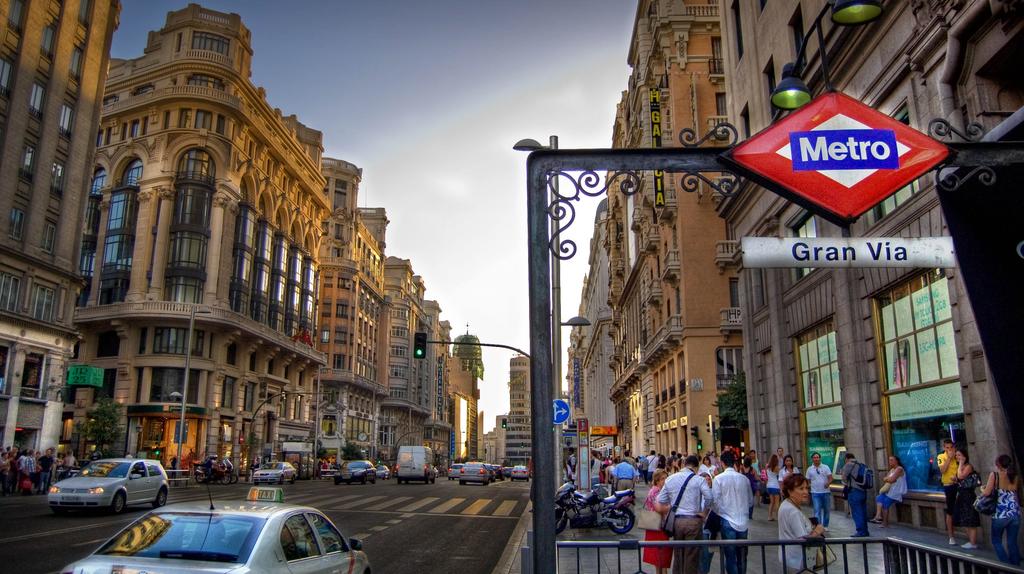
Bus
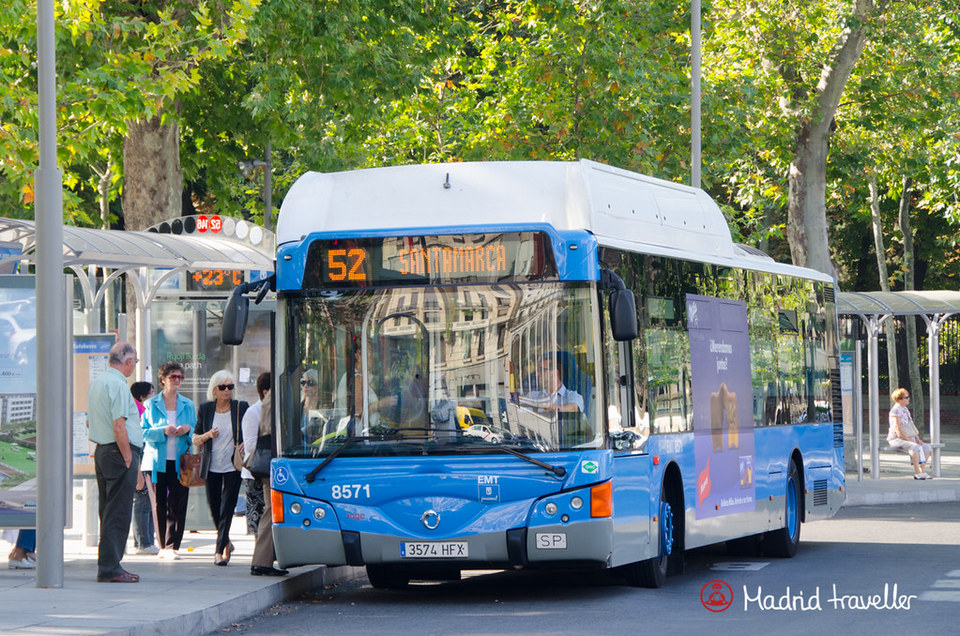
Operated by EMT Madrid, running from 6:00 am to 11:30 am, there is a trip in every 5-15 minutes. At night there also are buses that operate on a separate route or called “buhos”, running from 11:45 pm to 6:00 am.
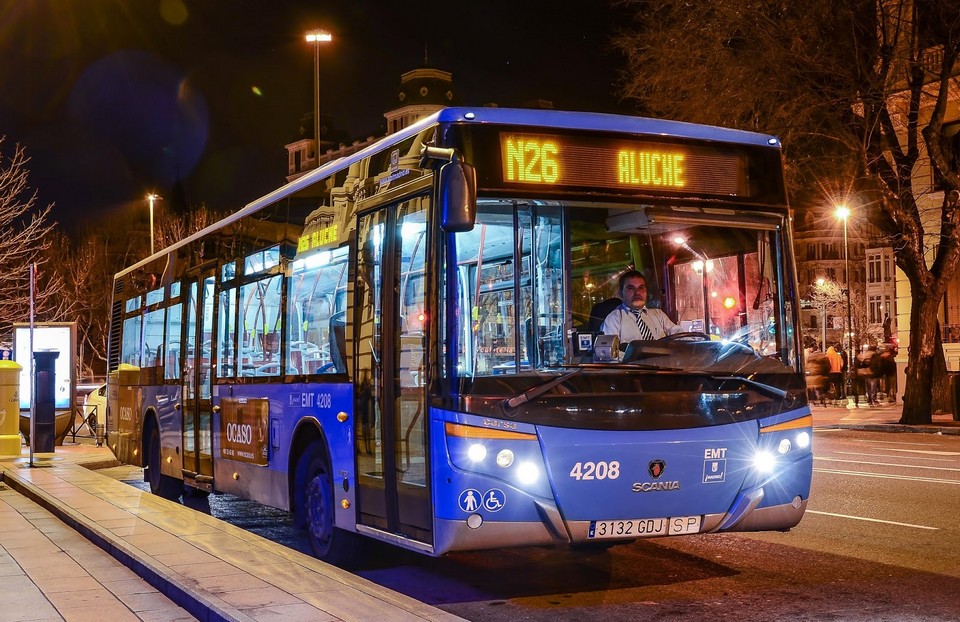
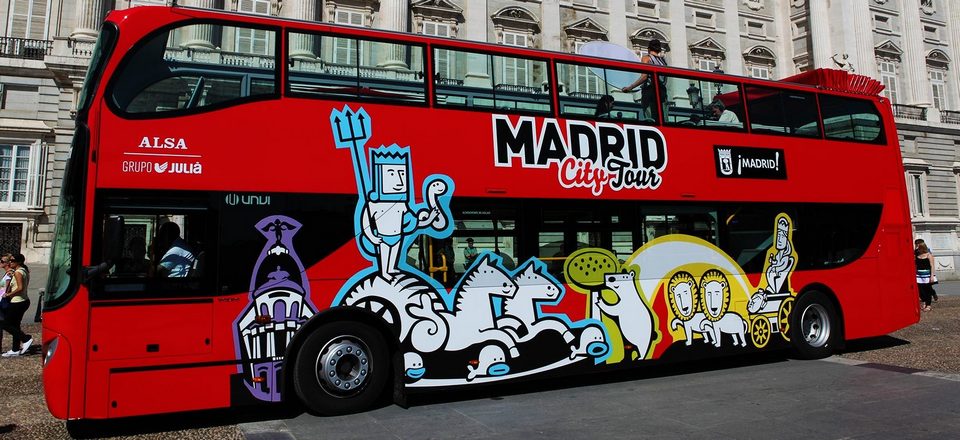
If you want to visit Madrid on two-tier buses (2-story buses), Madrid Vision Bus is the right kind of “hop on – hop off” bus. This bus has 2 main routes: Historic Madrid (running in the city center) and Modern Madrid (the northern and central area where there are big hotels, office buildings and busy shopping malls).
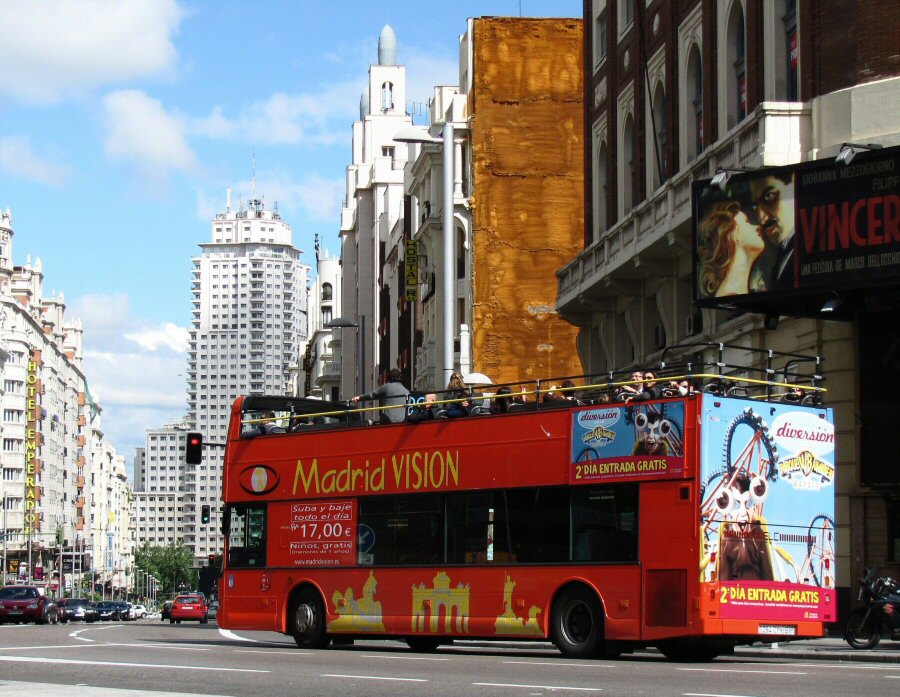
Madrid blog: What and where to eat?
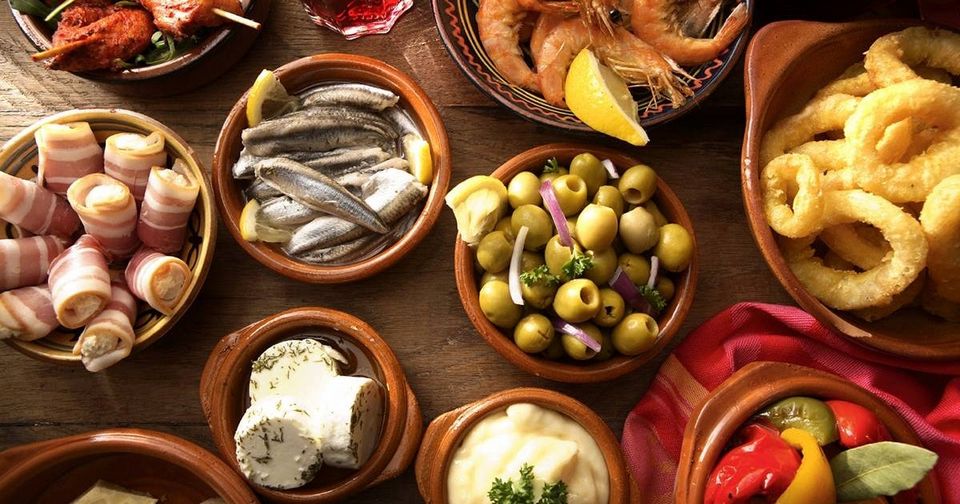
The famous dish in Madrid is still Tapas – of course, the traditional Spanish food, the next is seafood, although Madrid is located in the middle of Spain and is not adjacent to the sea. But seafood is shipped to Madrid quite quickly and is still fresh, but the price will be more expensive than other food.
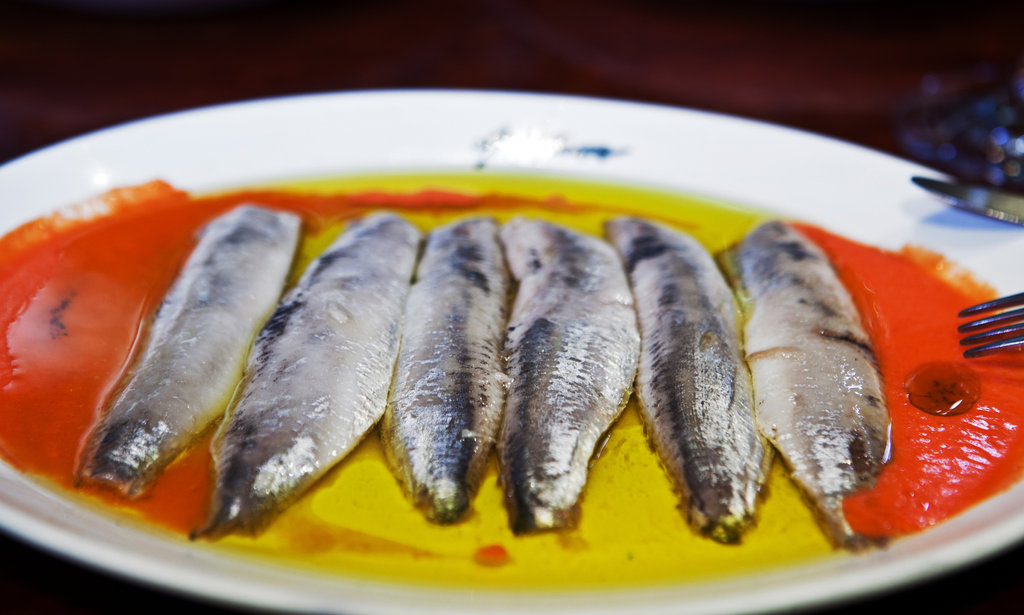
The Madrid people as well as other regions in Spain are famous for being lazy and sleeping a lot in daytime, their lunches usually start at 1pm and also the main meal, and at night, they will eat at 8pm or 10pm for the next meal. The restaurants also serve in this time frame, so if you hanging out and feel hungry, you should buy some snacks in advance and bring them.
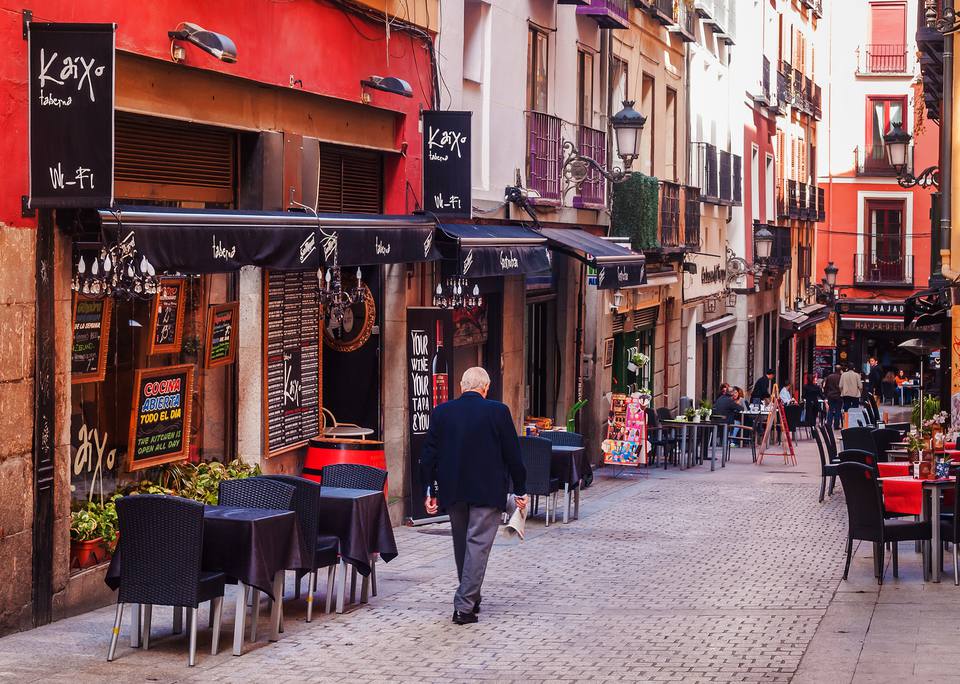
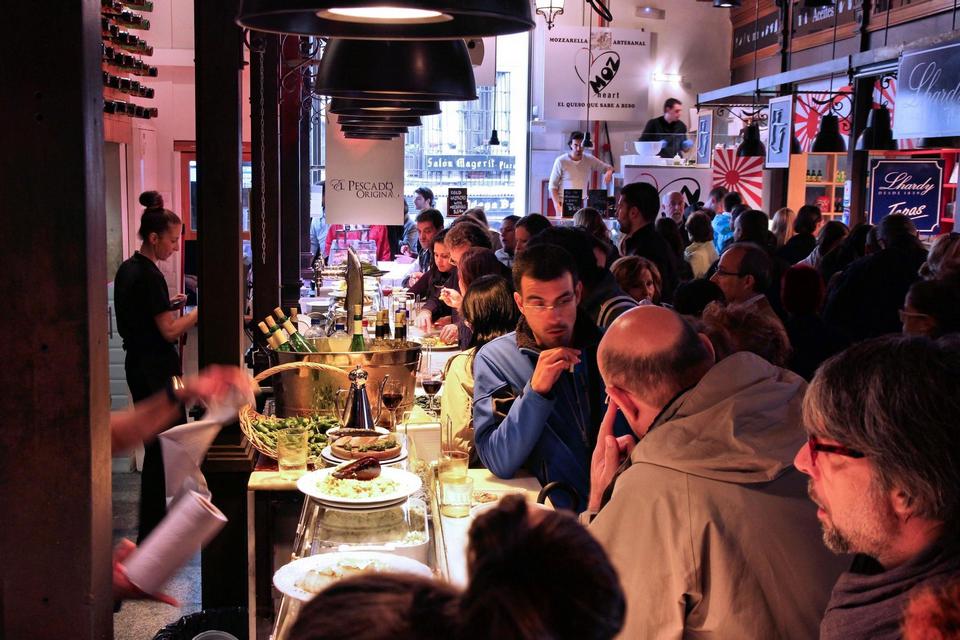
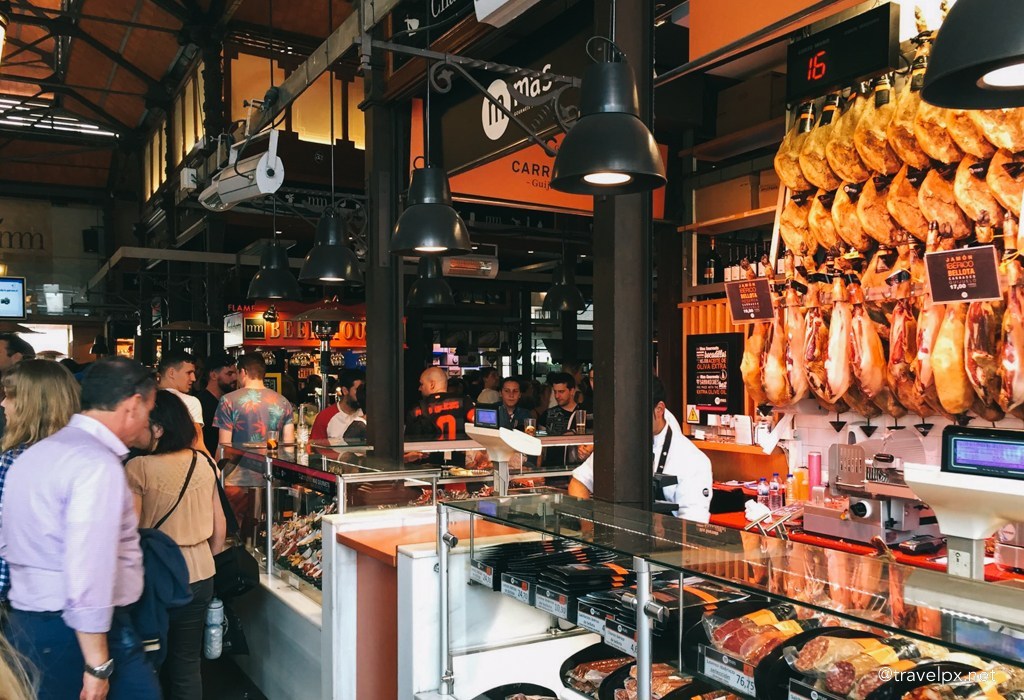
At some restaurants, if you order beer or wine, they offer you free to eat Tapas. If you order seafood, you can’t help but enjoy Paella, the dish originating from Valencia with rice, chicken, vegetables and seafood is on a large pan. One of the best Tapas restaurants is Tacos & Tapas (Address: Calle de la Redondilla, 7, 28005 Madrid, Spain / Hours: 1–4PM, 8–11PM; Friday: 1–4PM, 8–11:30PM; Saturday: 1:30–4:30PM, 8PM–12AM; Sunday: 1:30–4:30PM; Monday: Closed / Phone: +34 917 29 83 51), this is a Mexican restaurant with good service quality although the staff of the restaurant speak English is not good, the food is rich and very fresh. You should order the outstanding food of the restaurant like Red velvet cakes including cheese and vanilla, fajitas, chicken mole, and cocktail is also very good.

The second dish is a stew named Cocido Madrileno. Its ingredients are made from chicken, pork and beef. They will then be simmered with beans, potatoes and other vegetables.
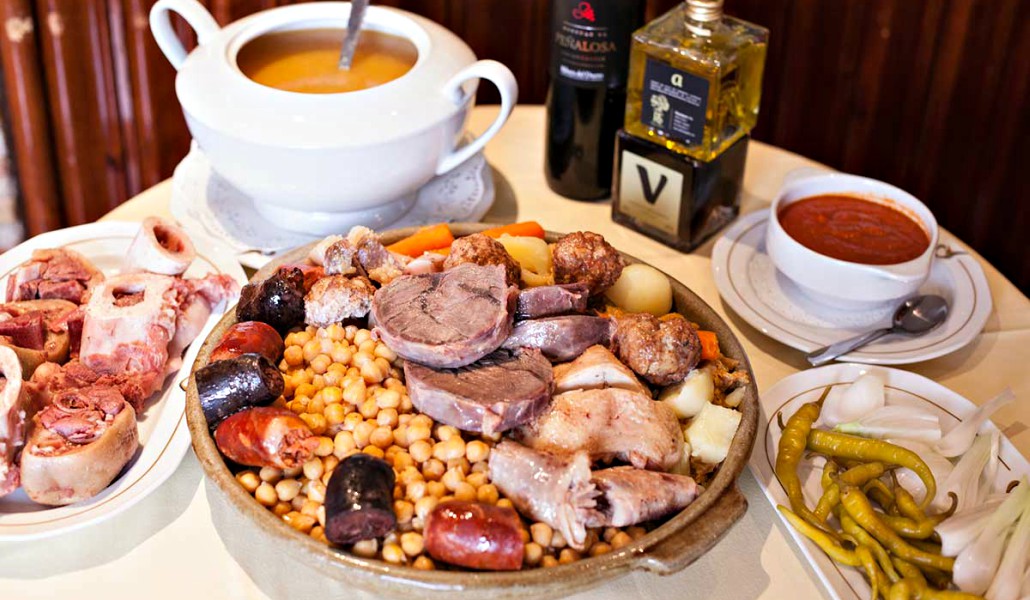
Another dish that you can not miss is jamon. This dish will be served with bread or not with anything also very delicious. Although each region possesses different ways of processing, this dish is generally considered to be a worth try dish of Spain.

Madrid city guide: Where to stay?
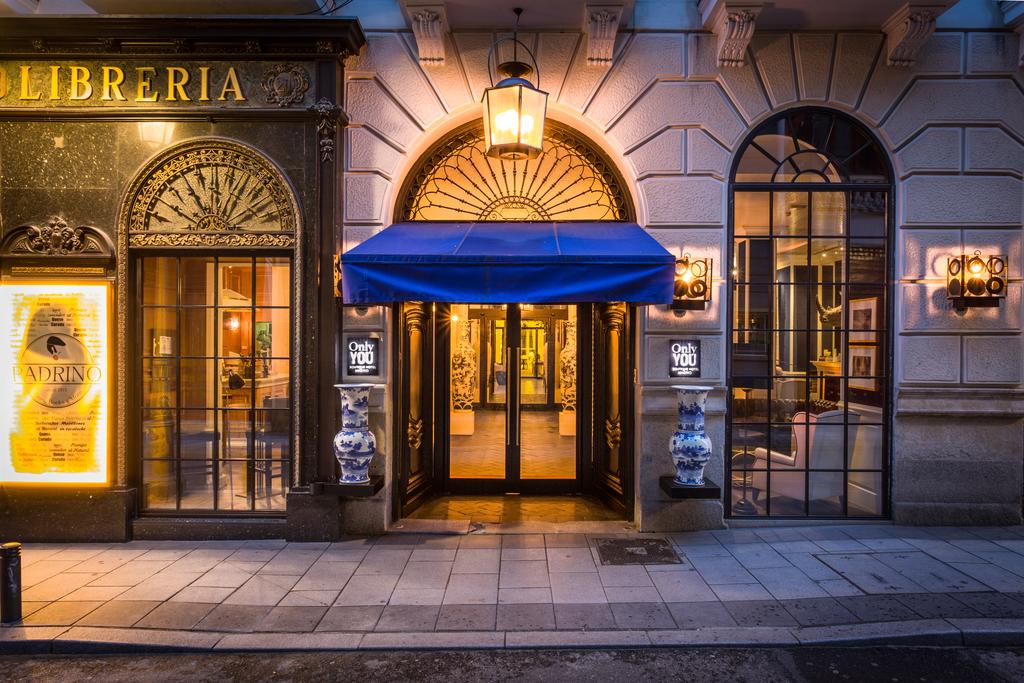
The price of a hostel room in Madrid is also not too high, about €10- €25/night/bed in dormitory room, and if you rent a private room, the room rates from €45-€ 60/night. Usually, hotels or hostels here often raise prices on weekends or peak occasions and festivals. You should reserve in advance via Booking.com or Agoda.com. If you plan to stay in a hostel, you will find a variety of rooms on Hostelworld.com than Booking.com. Here are some areas that tourists often consider looking for a hotel when visiting Madrid.
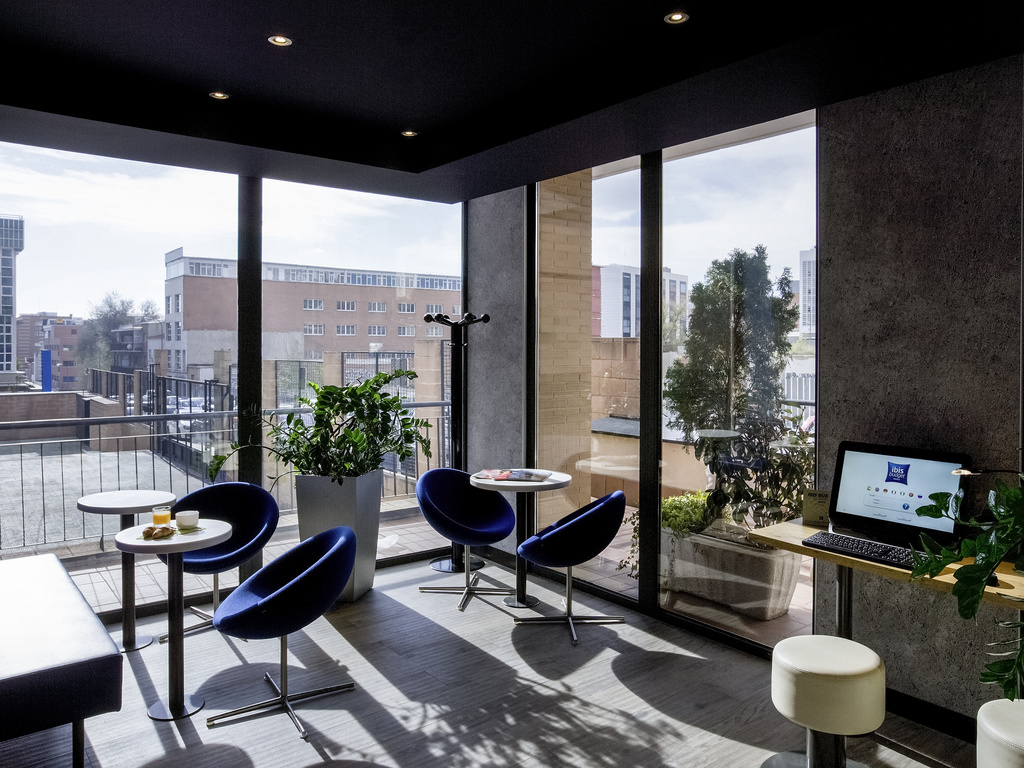
Plaza Santa Ana: The most popular is the area around Plaza Santa Ana square, which is located in the city center and close to places of interest, Metro lines and Bus routes are both much and convenient. Here you do not have to worry about the rhythm of life, shopping and dining areas, food shops. In the evening walking here and watching the bustling streets are also interesting.

Lavapiés: A neighborhood for working class and backpackers. The room rates is cheaper than other areas, but there are also many small shops, eateries and street food.
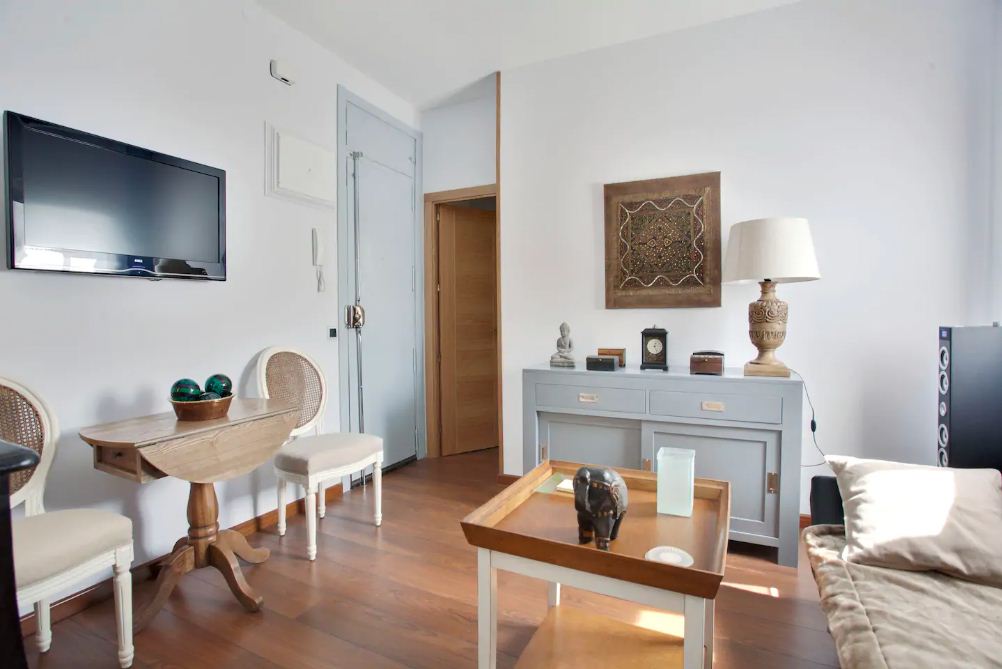












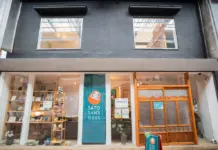










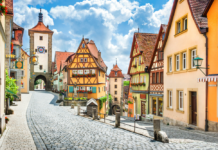








![10 best airports in Asia in 2016 [RANKED] kuala-lumpur-international-airport-best airports in asia in 2016 by skytrax ratings](https://livingnomads.com/wp-content/uploads/2016/08/29/kuala-lumpur-international-airport-best-airports-in-asia-in-2016-by-skytrax-ratings-218x150.jpg)








